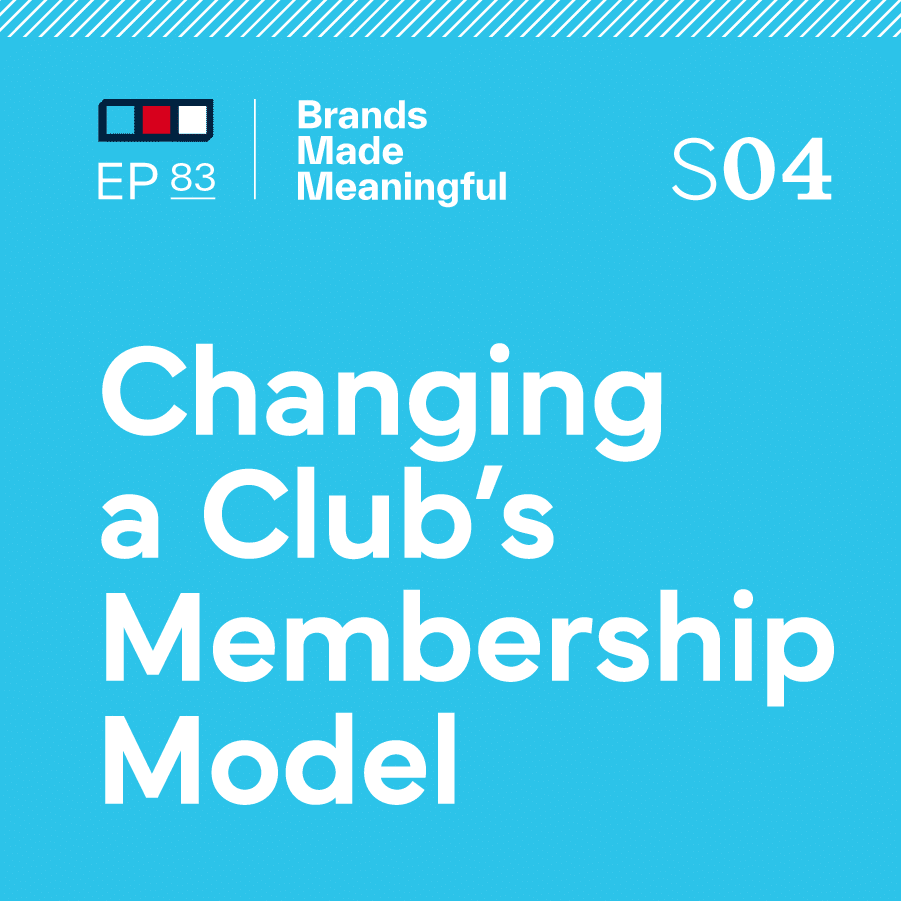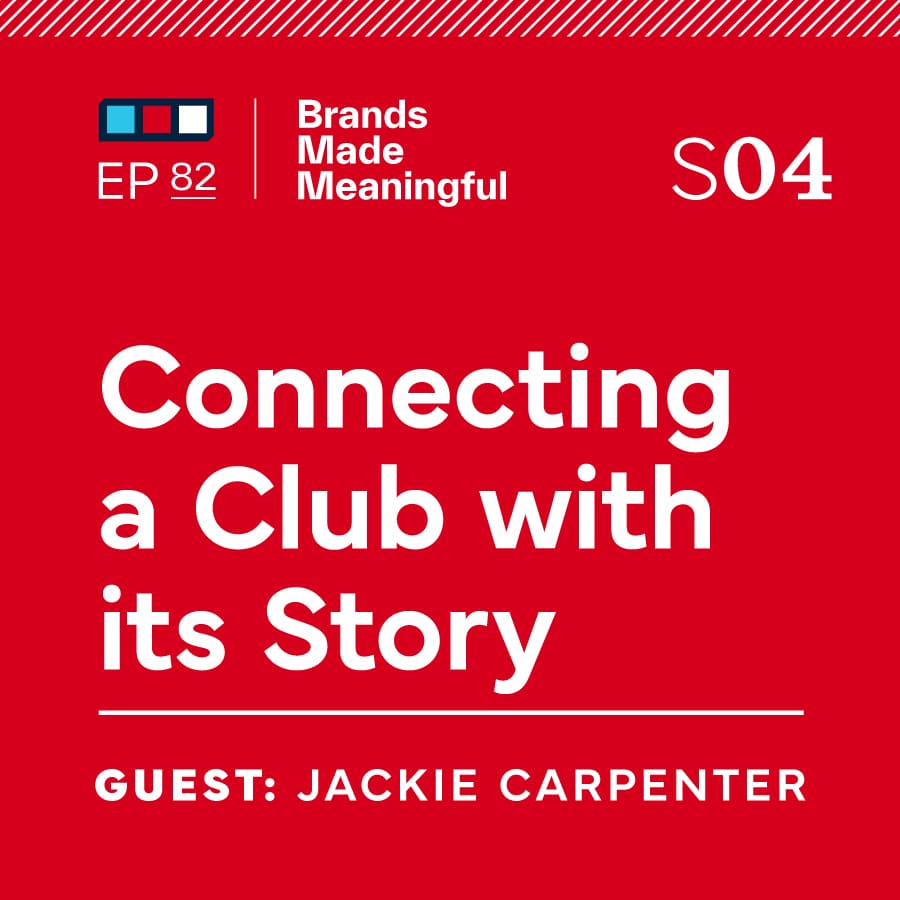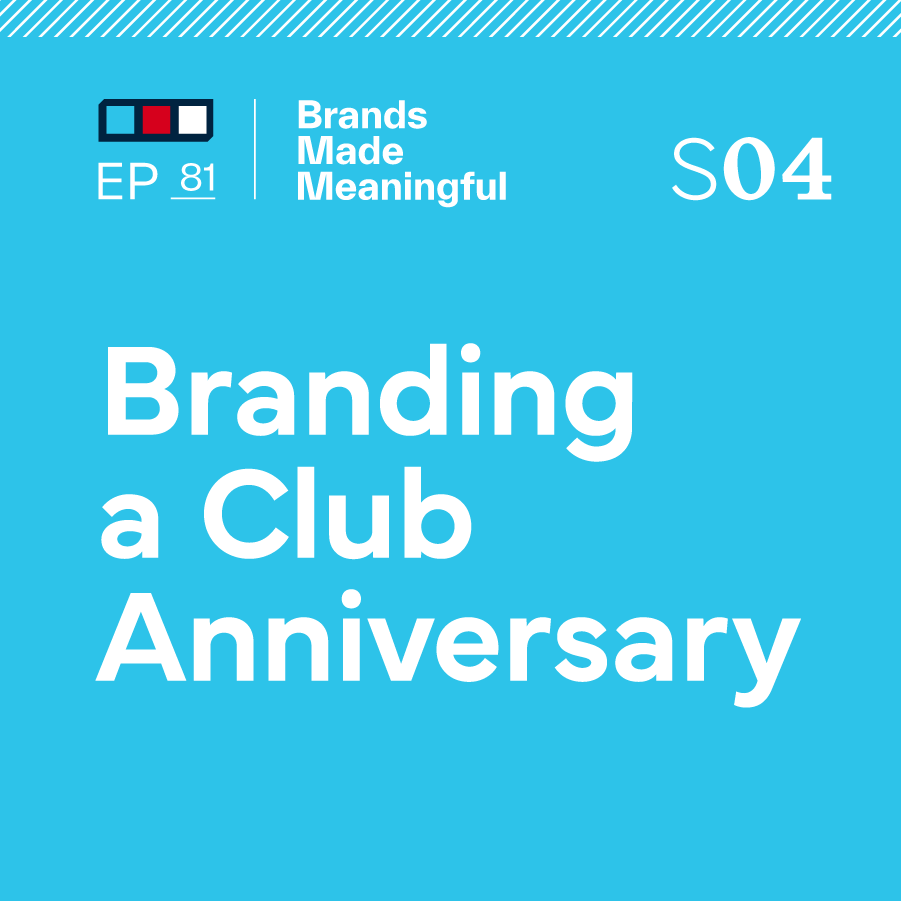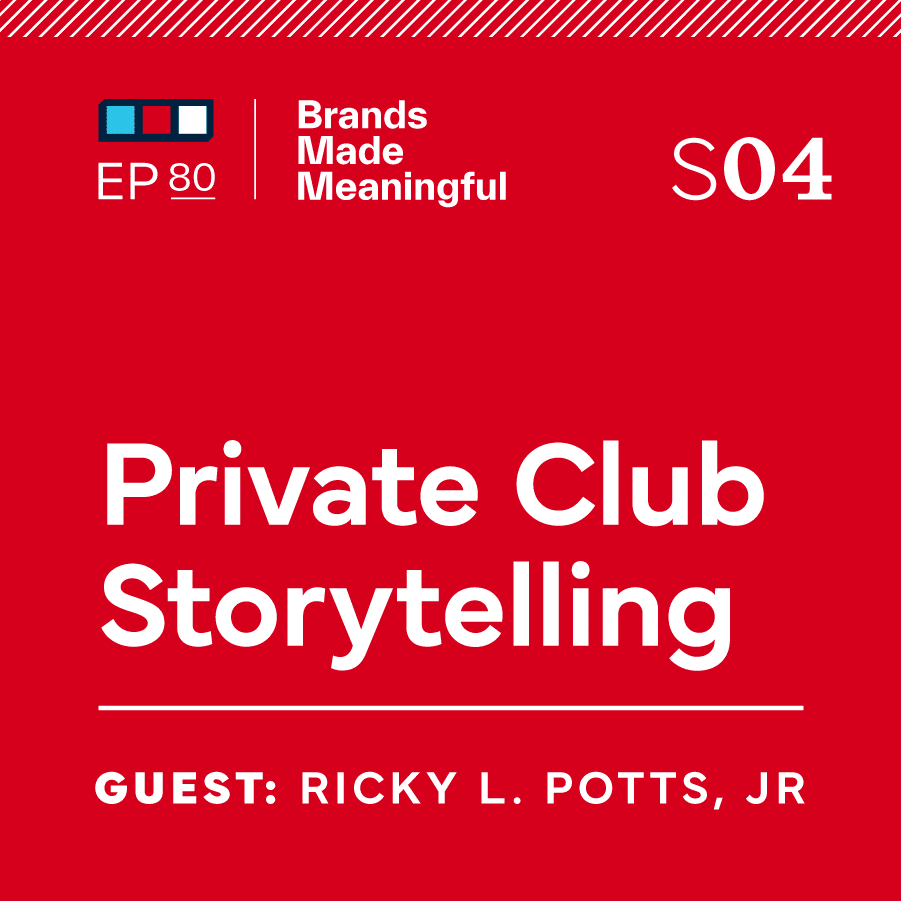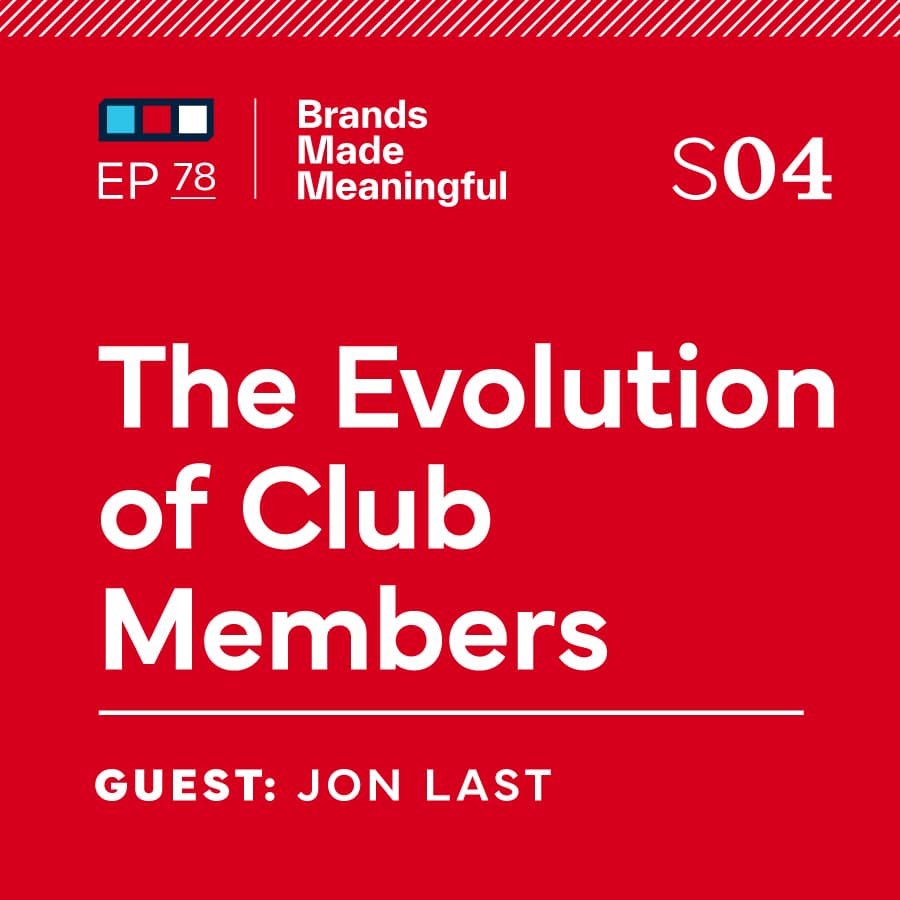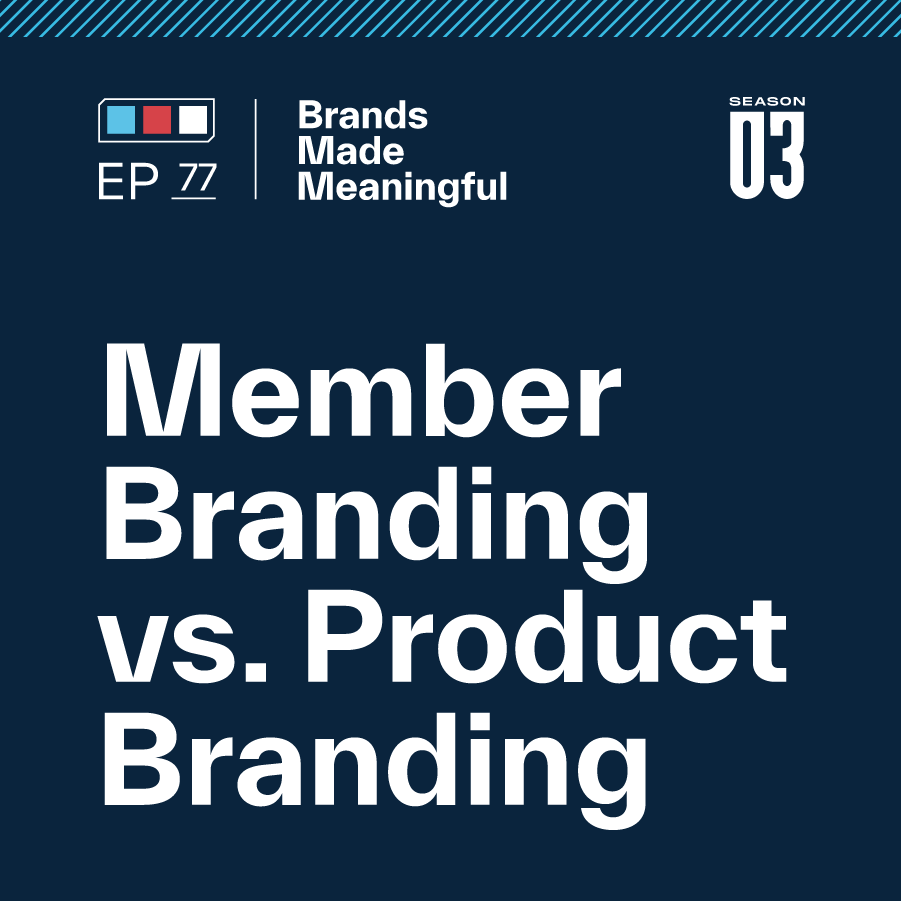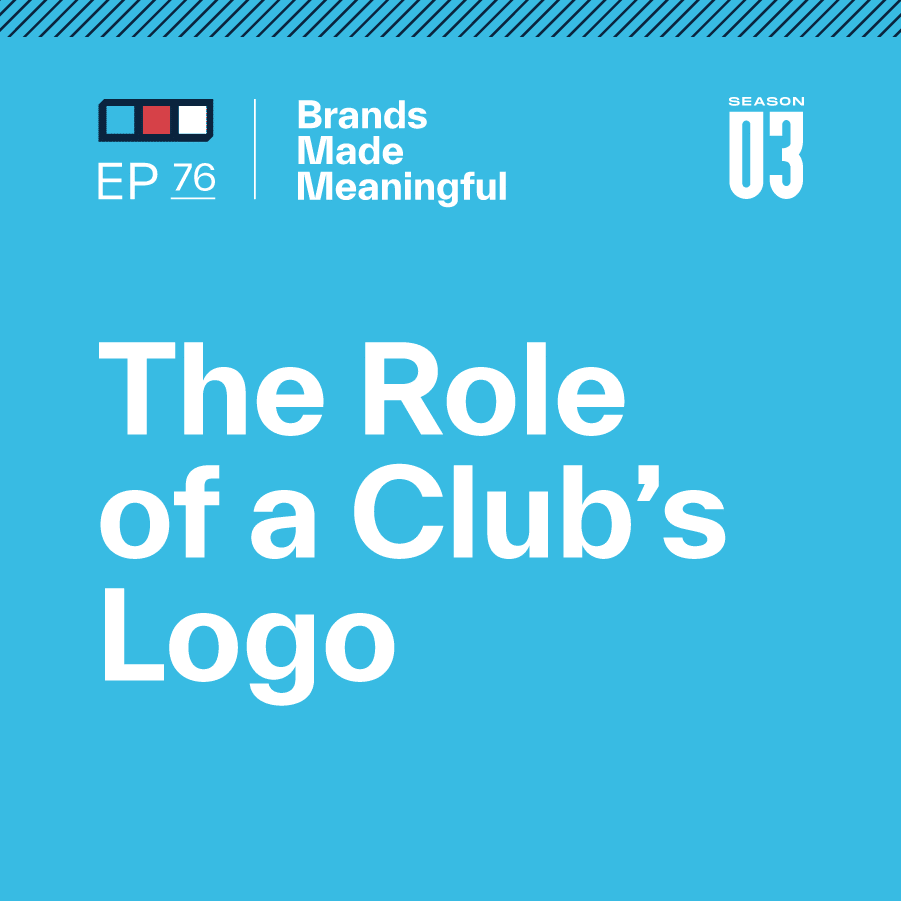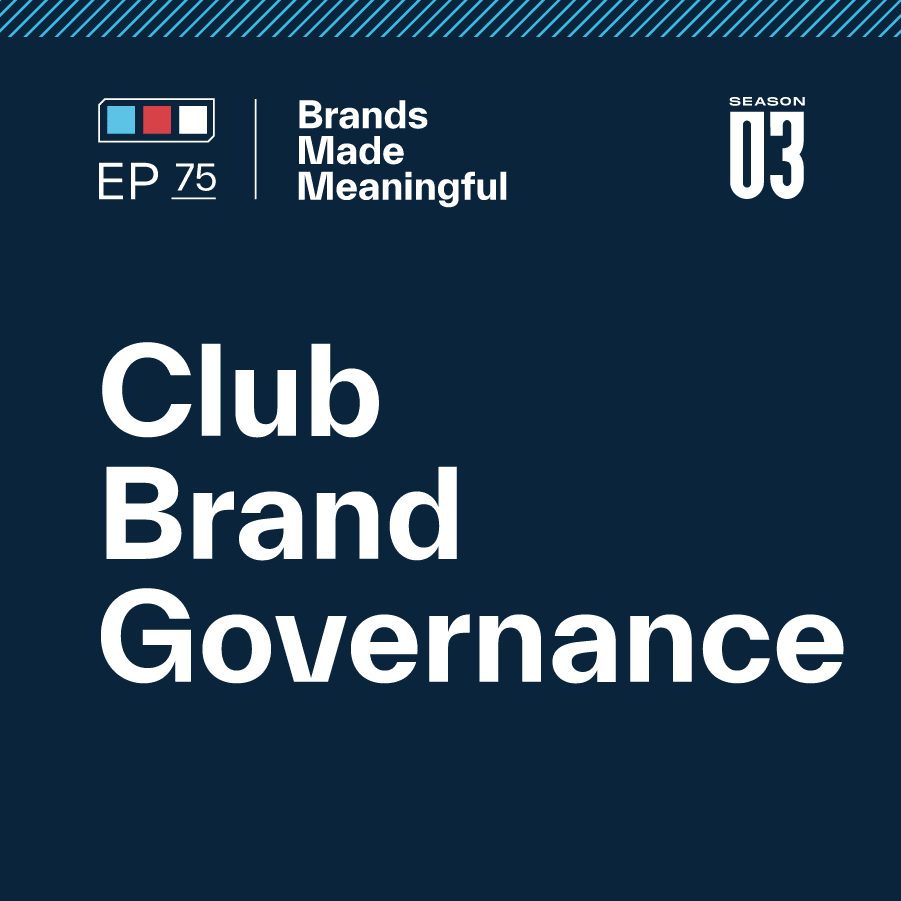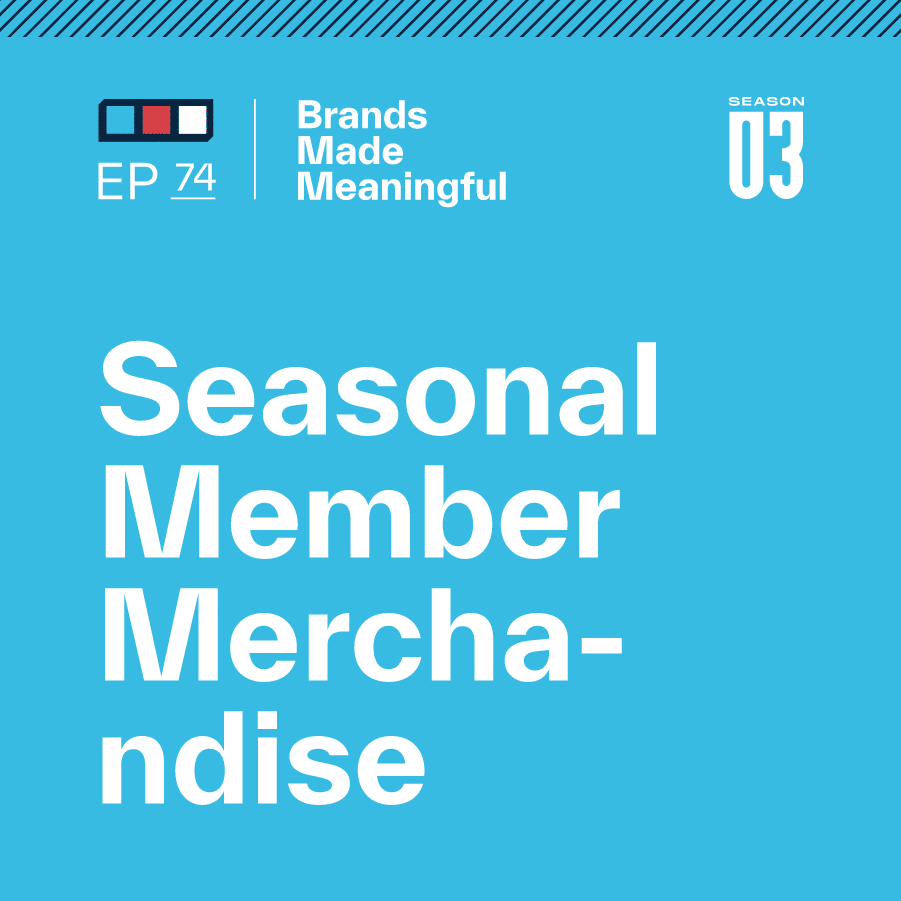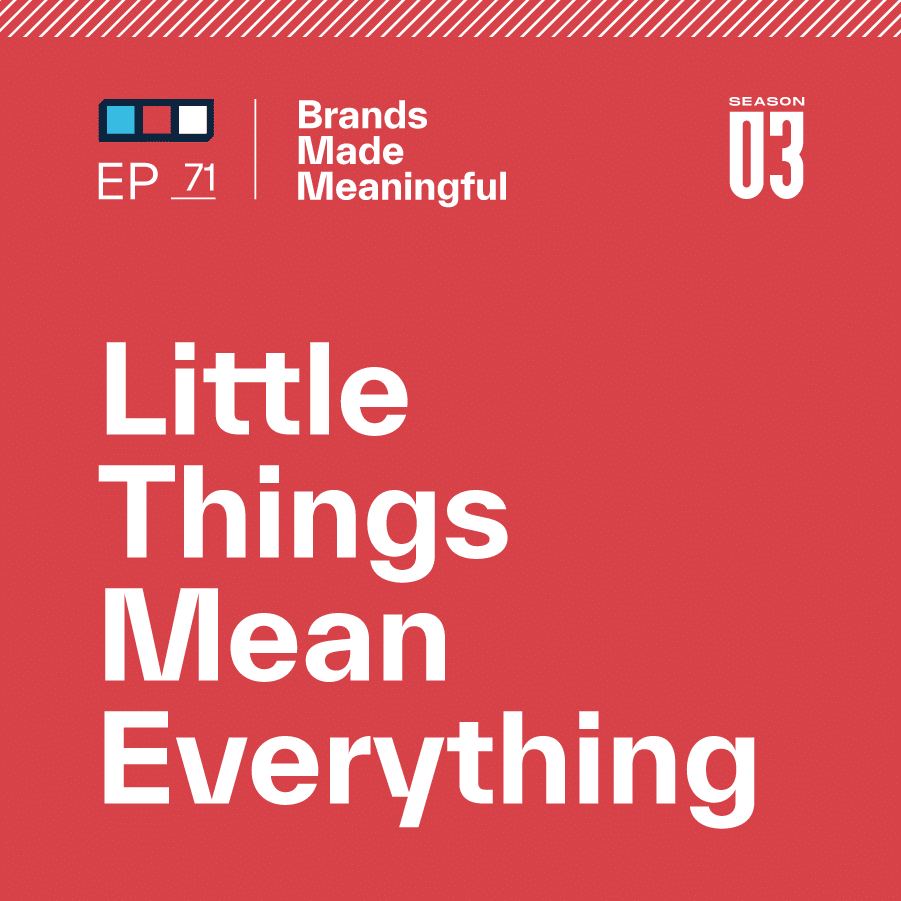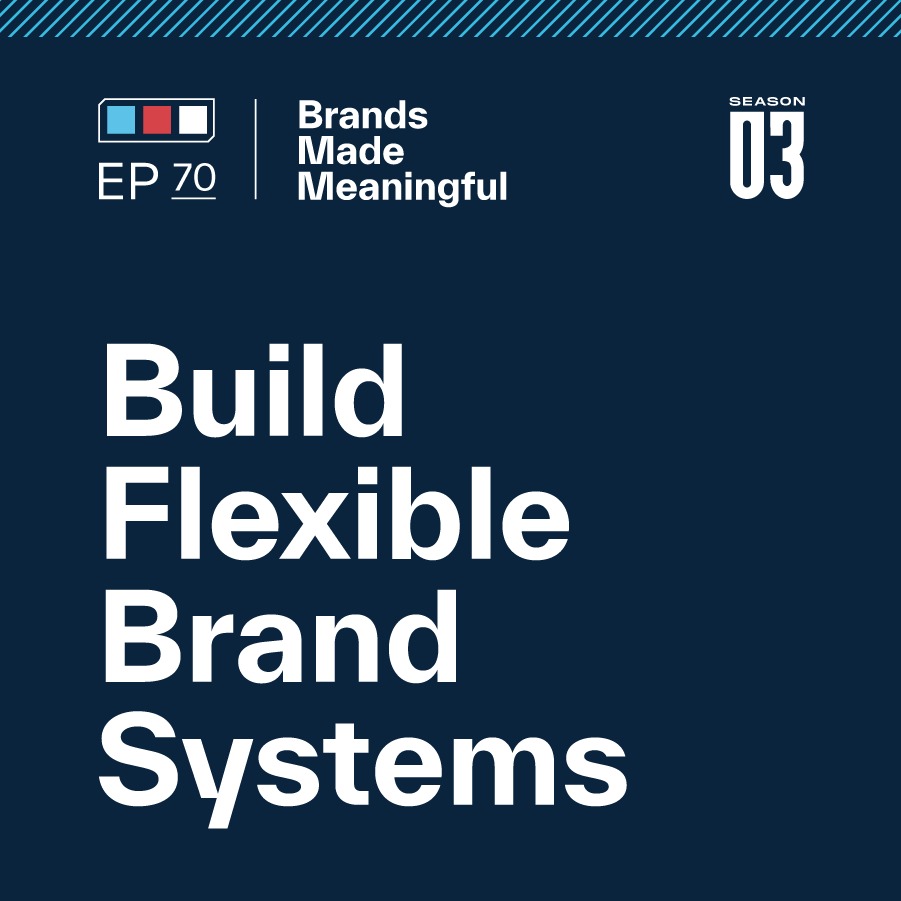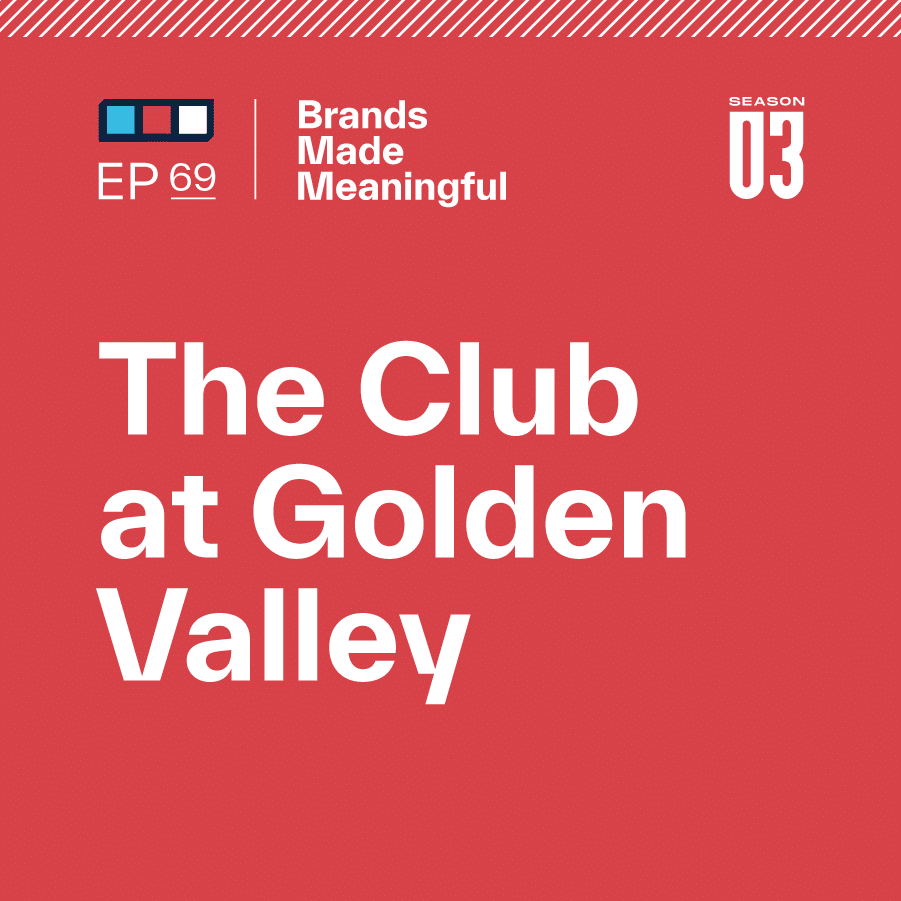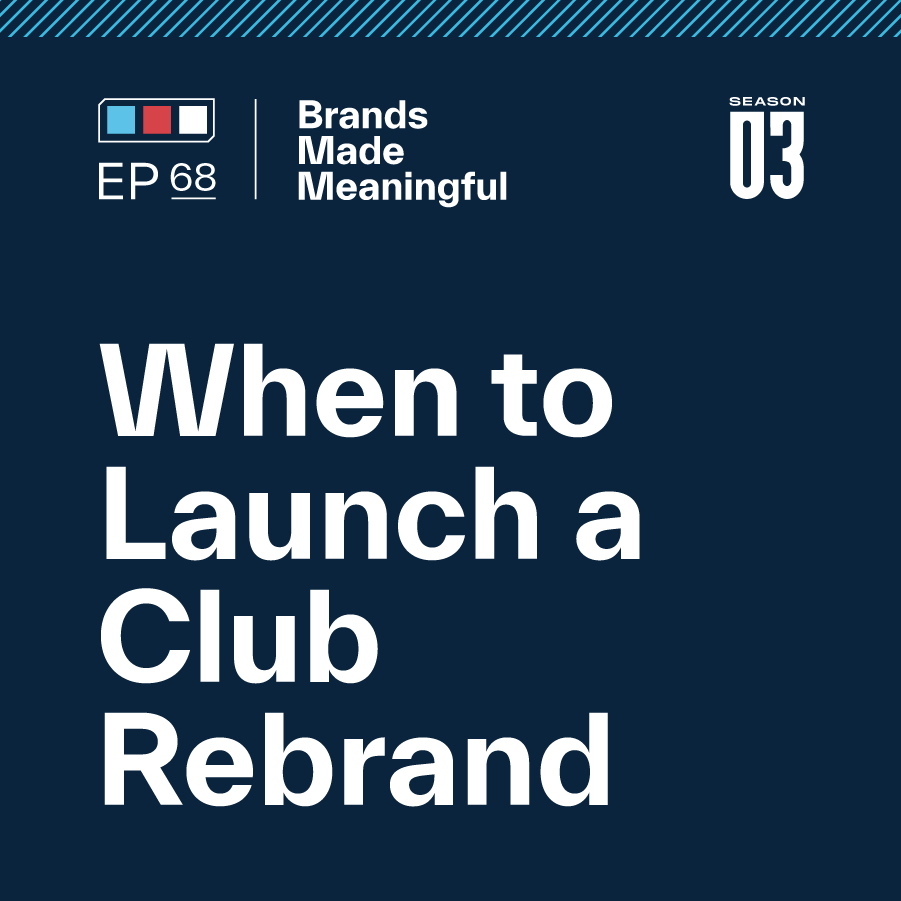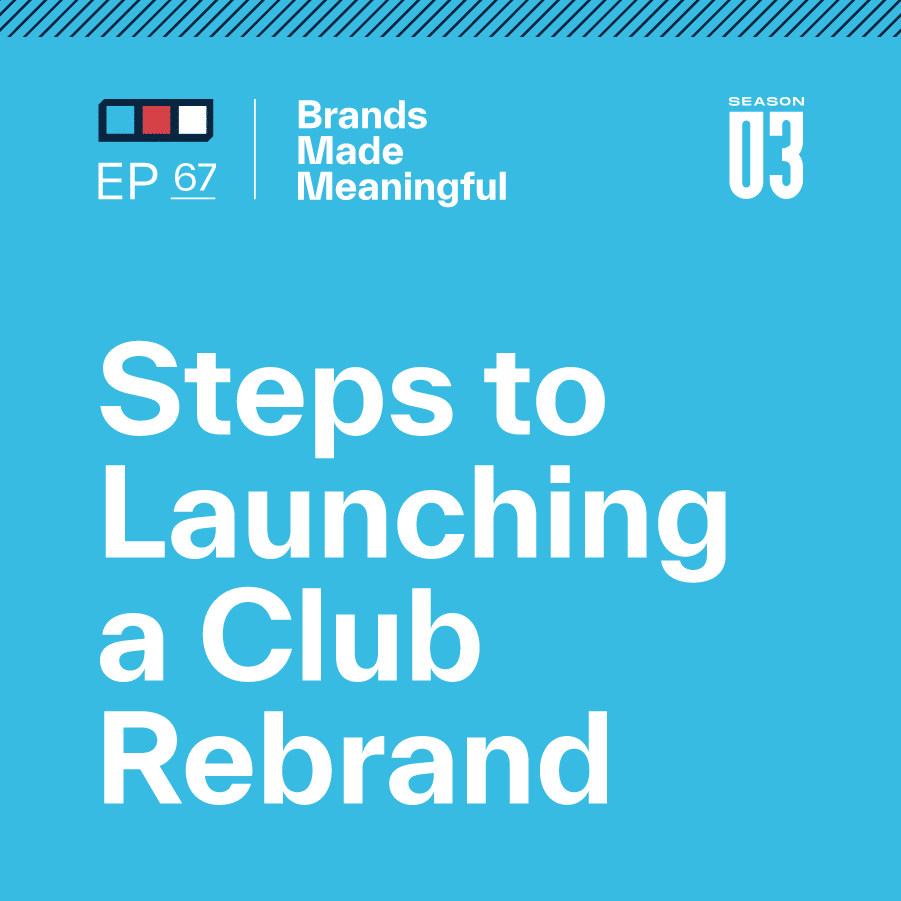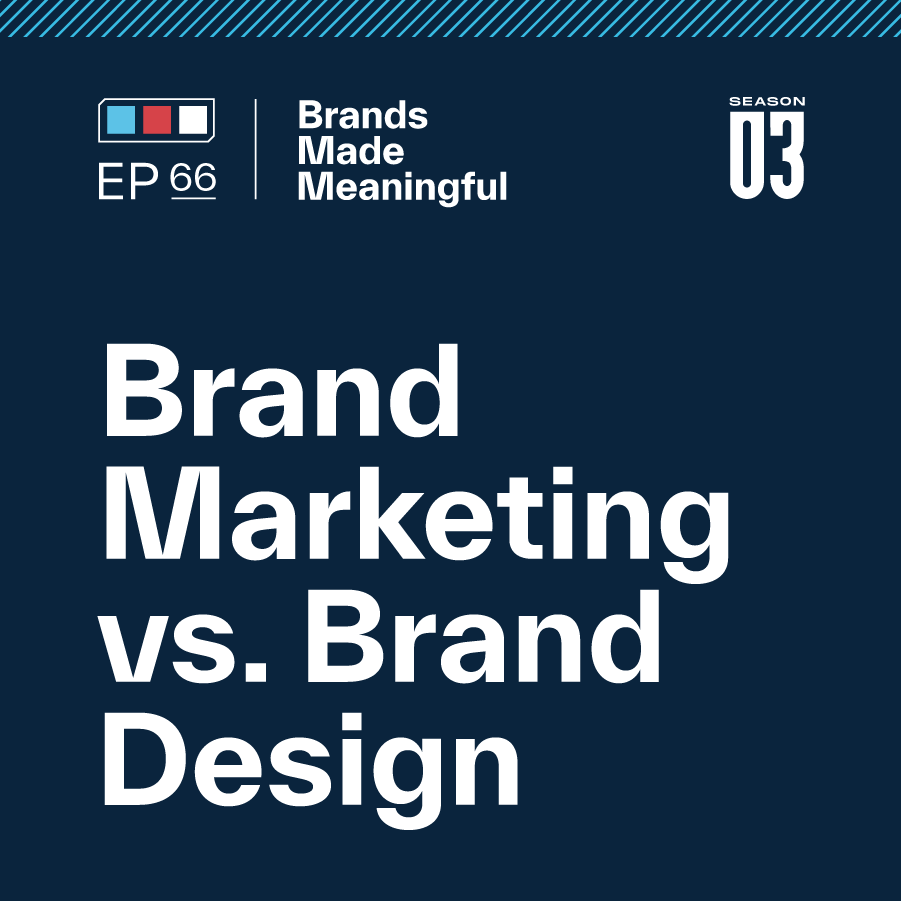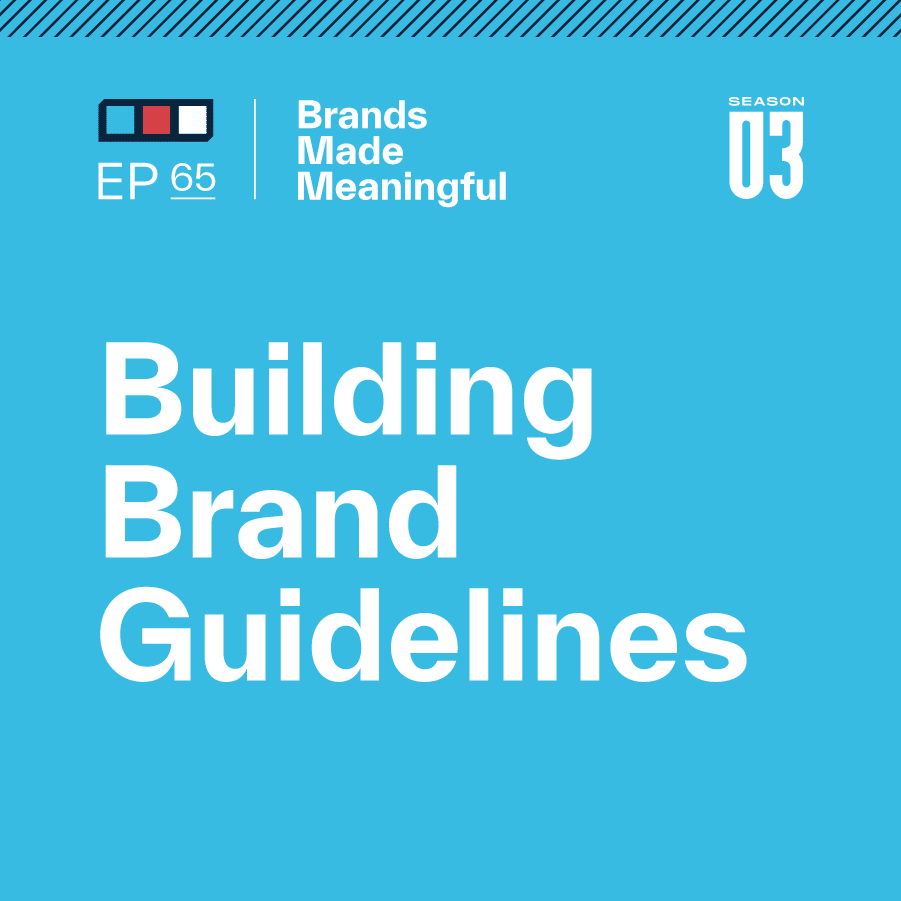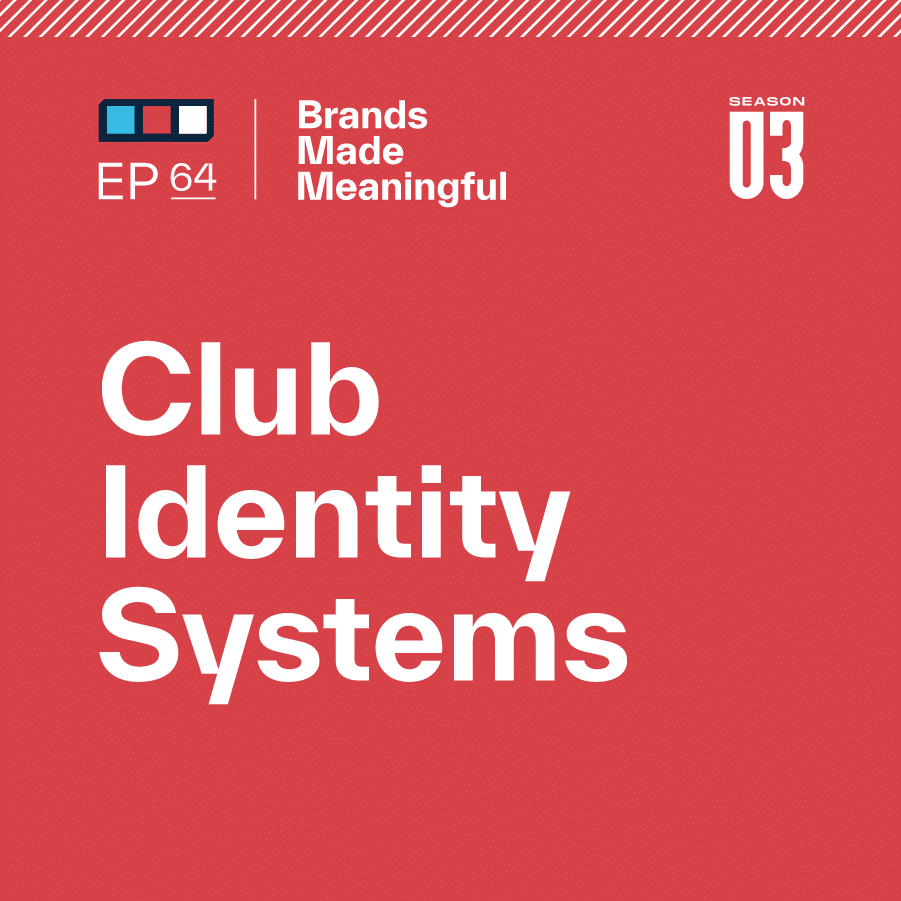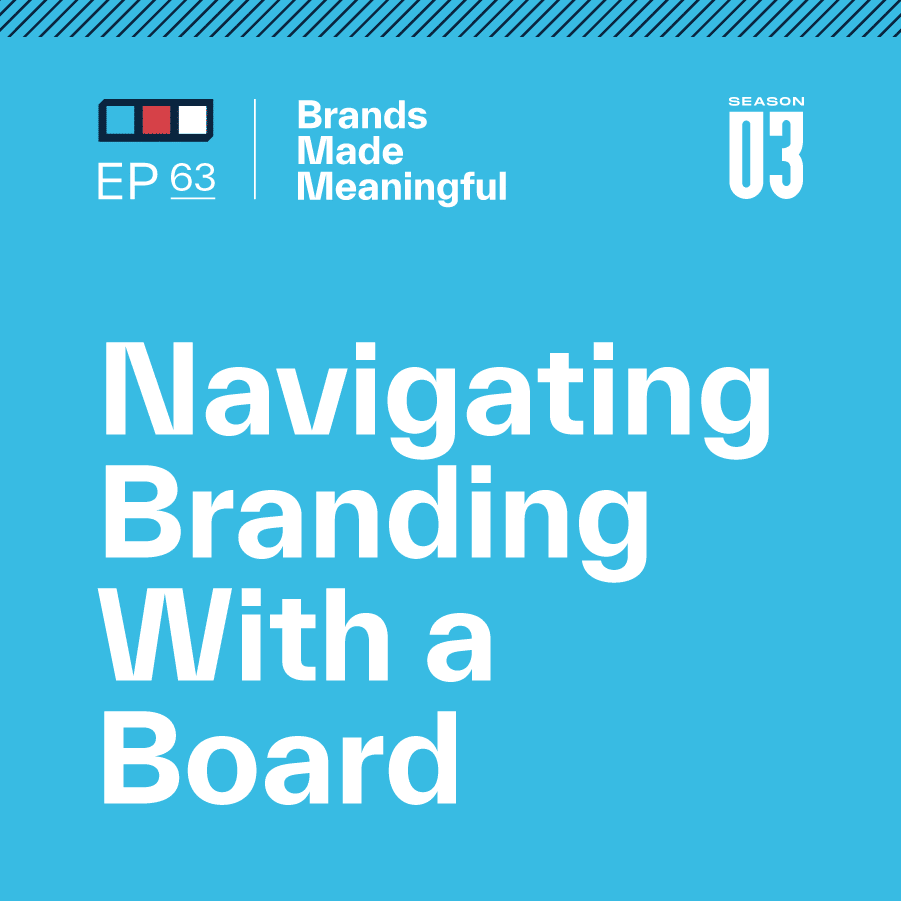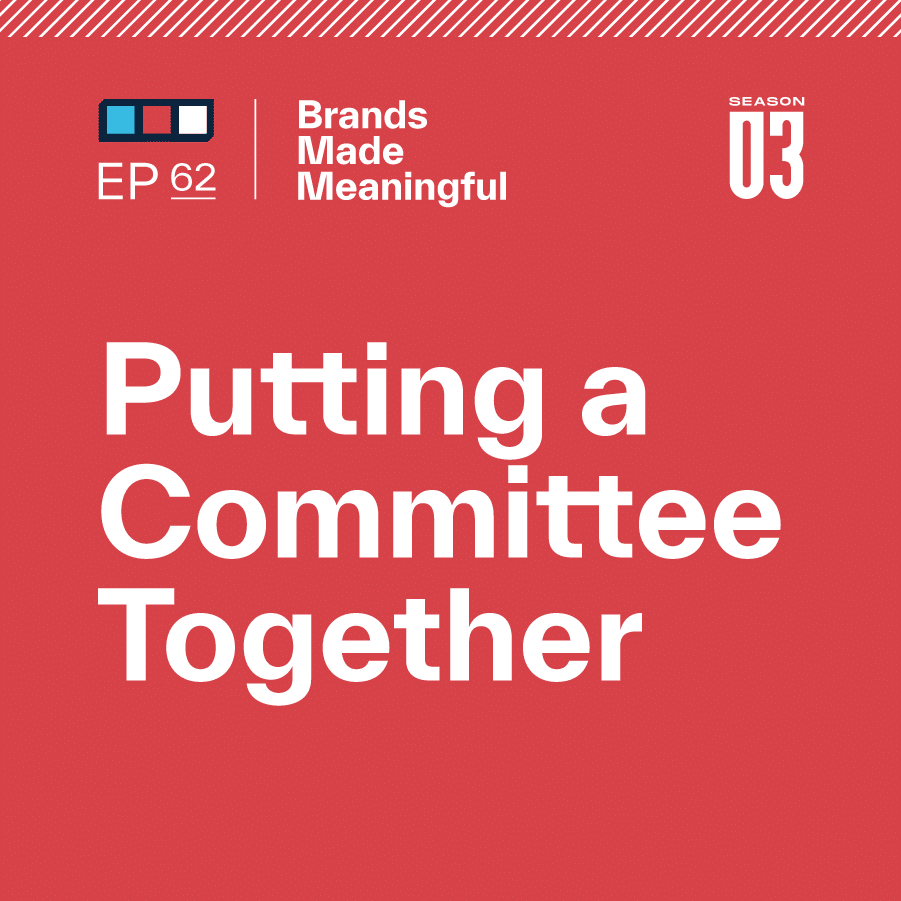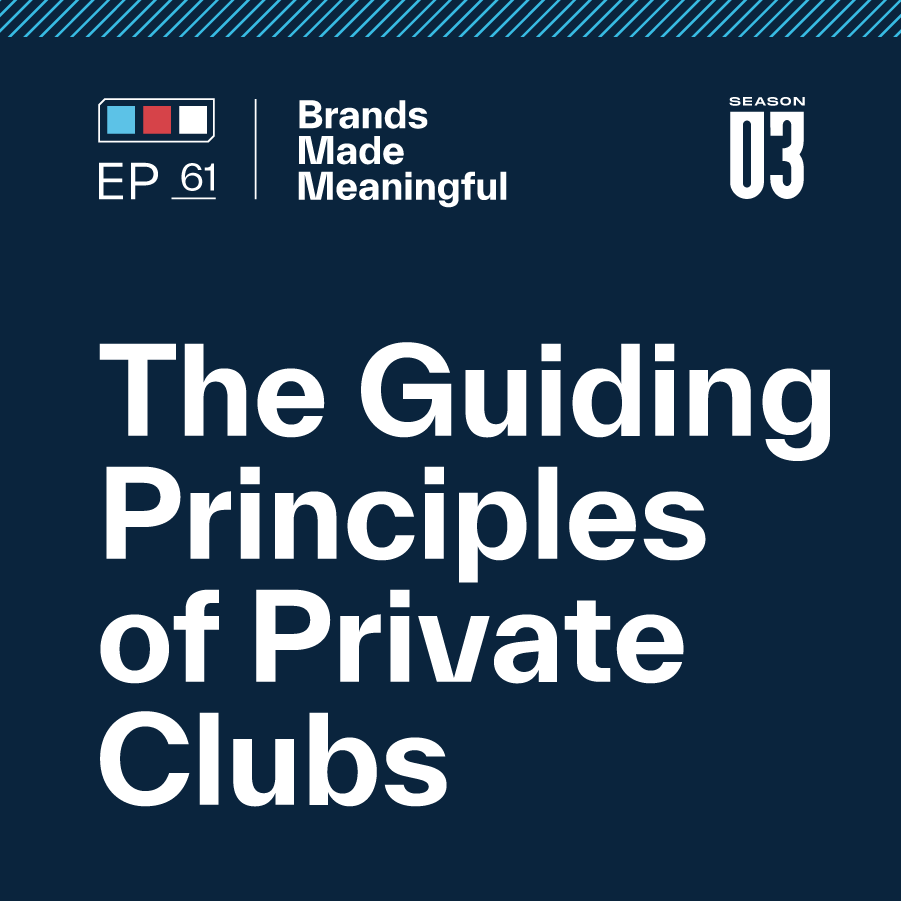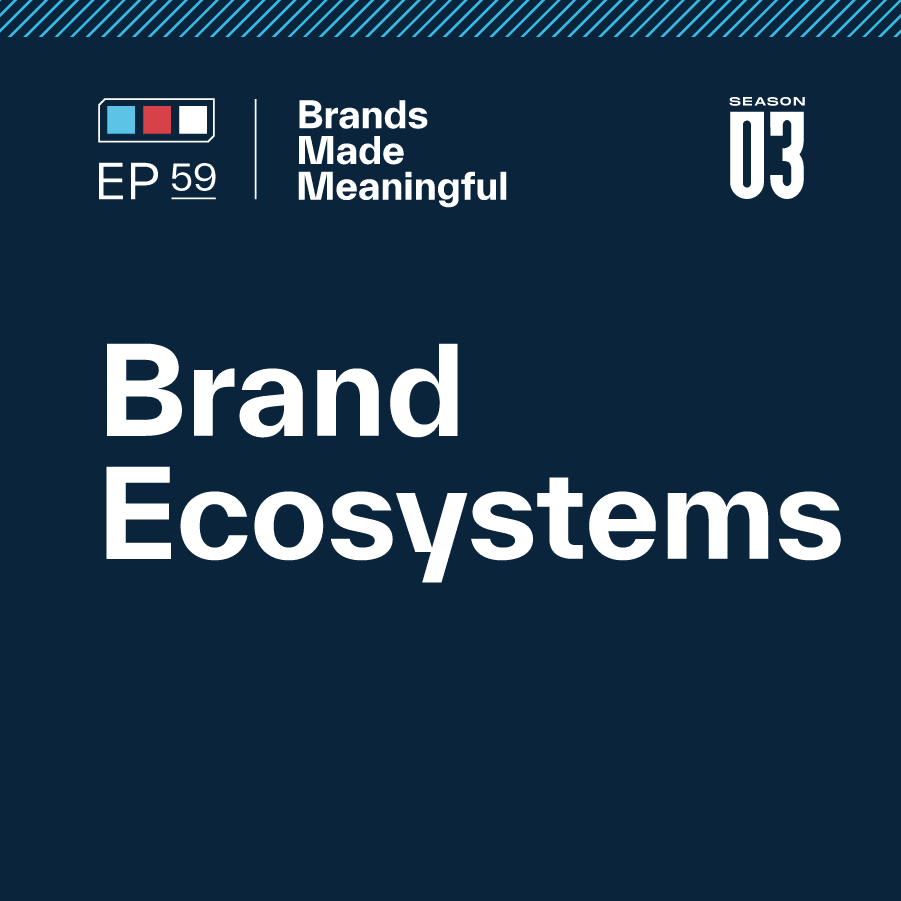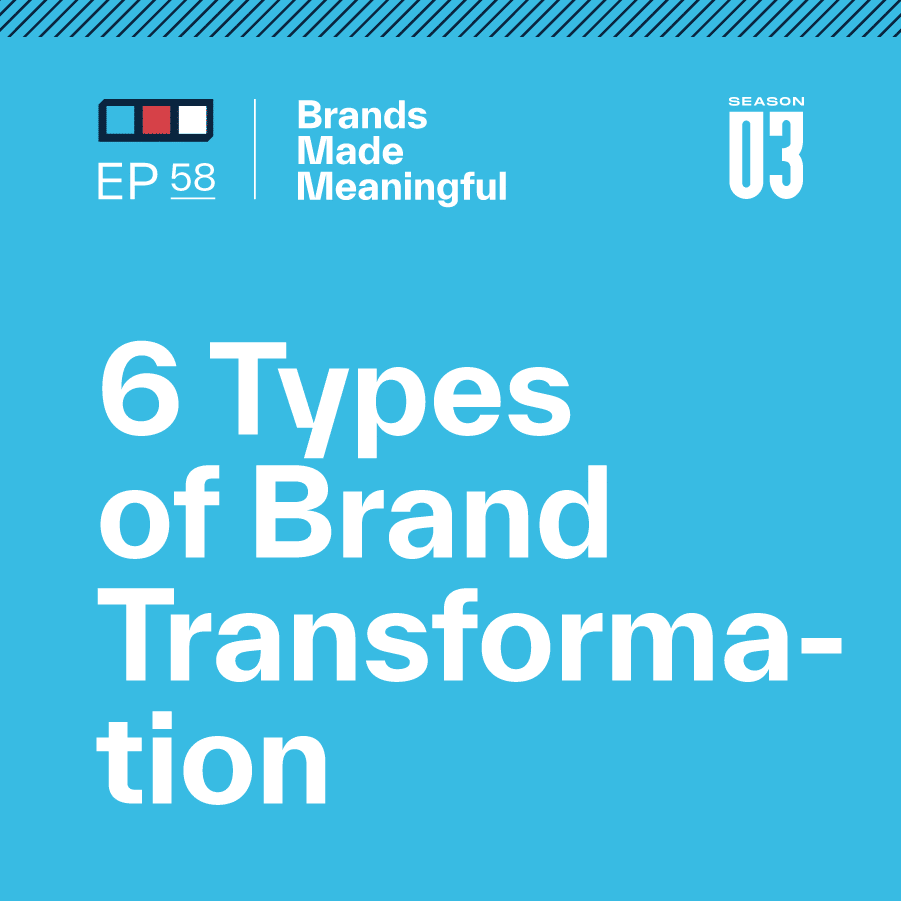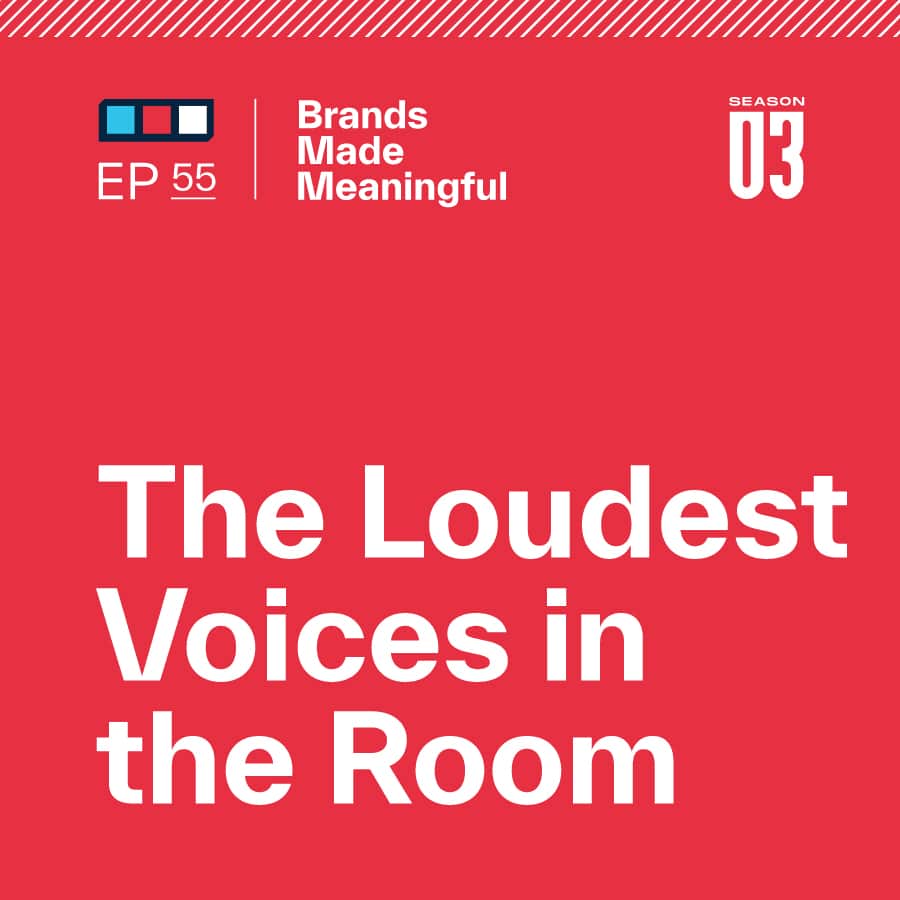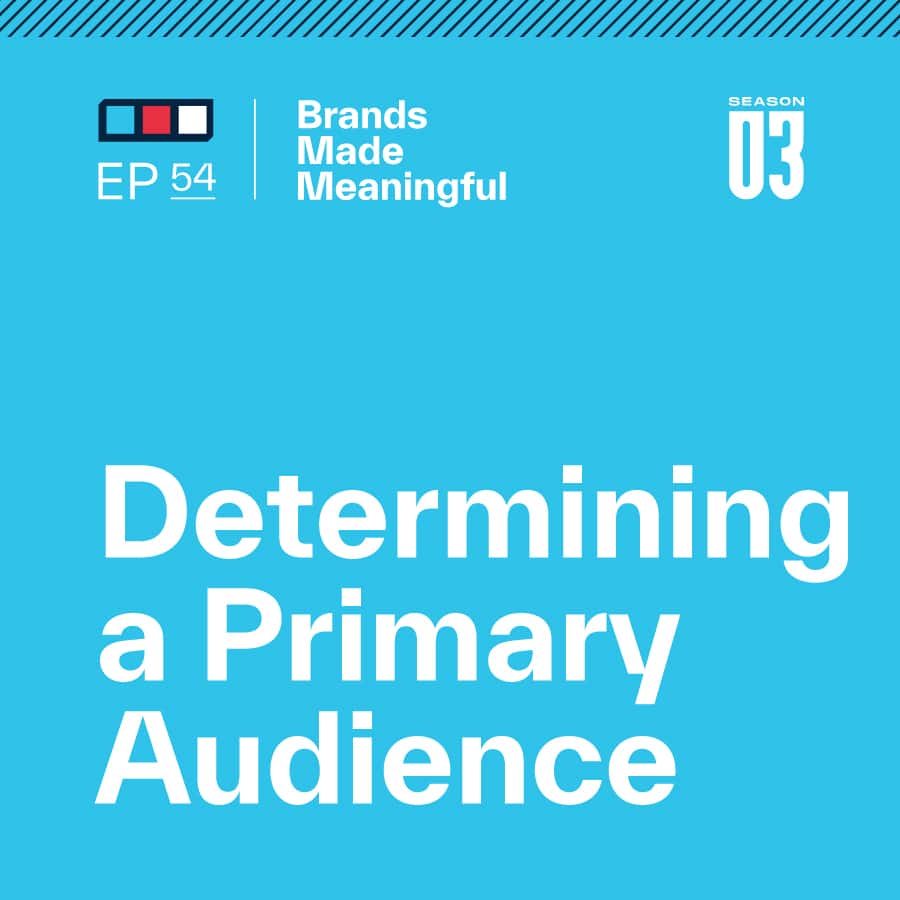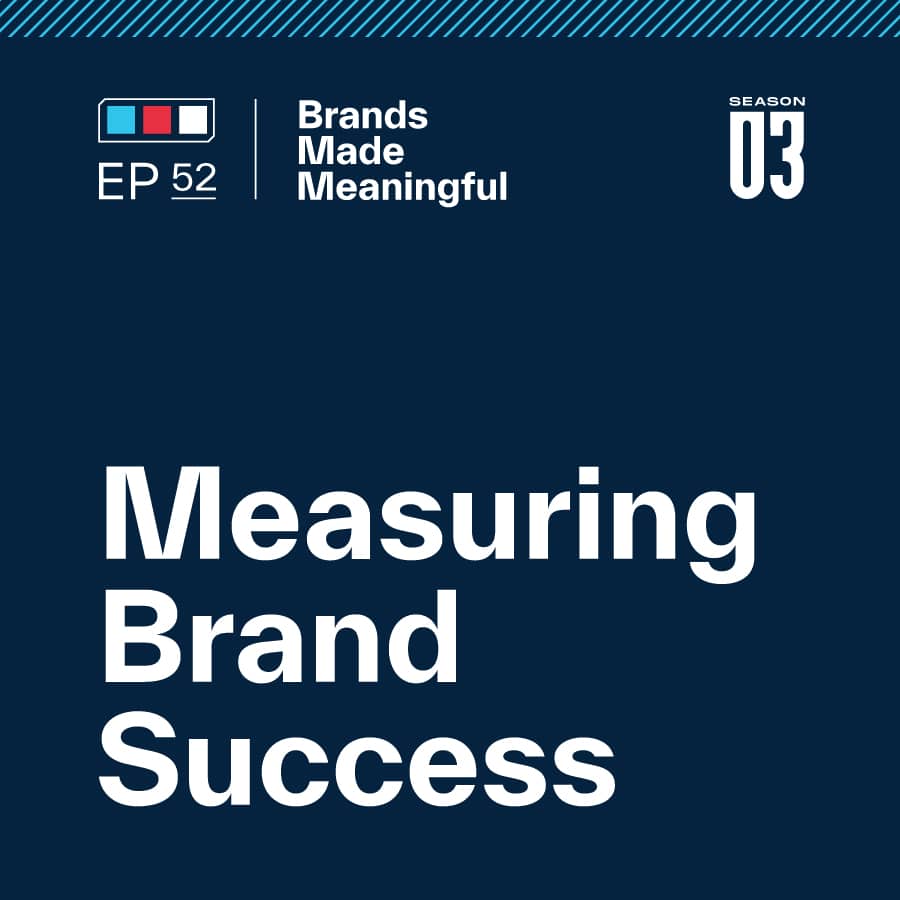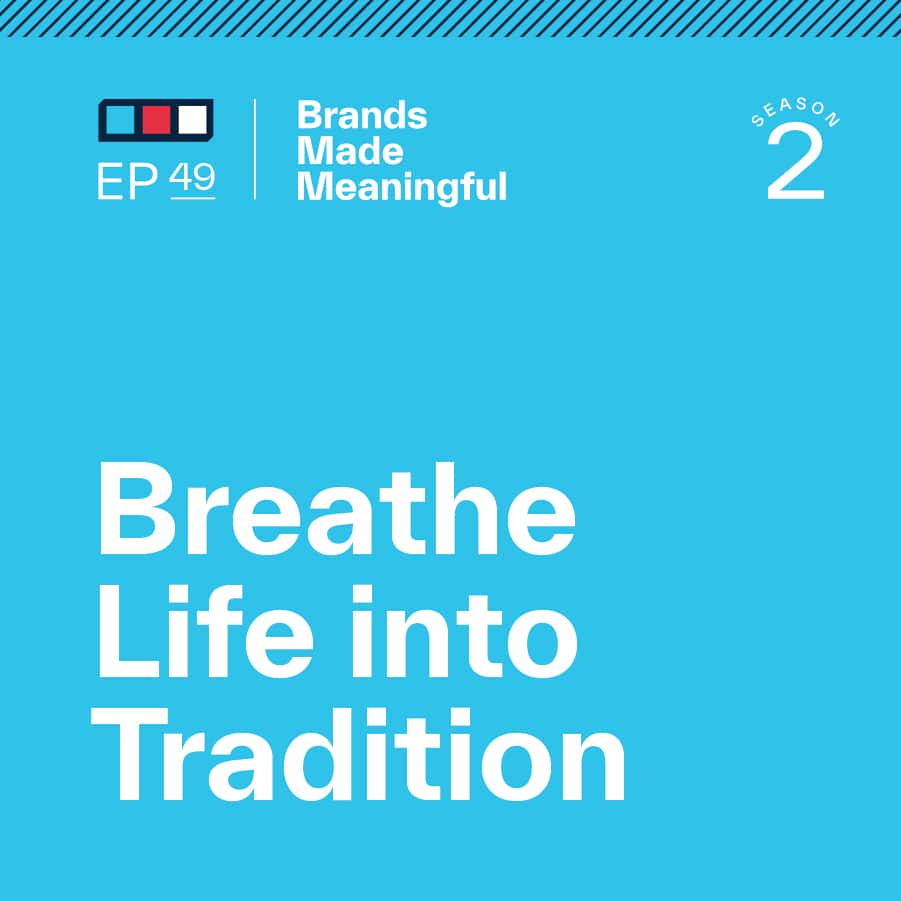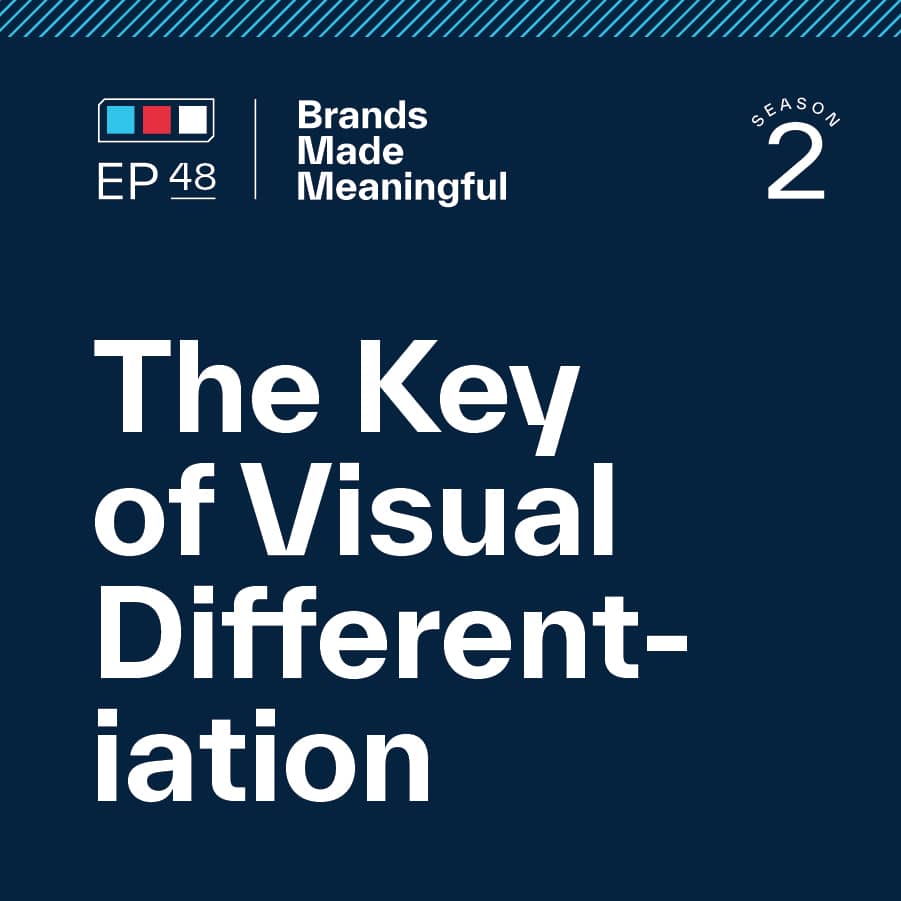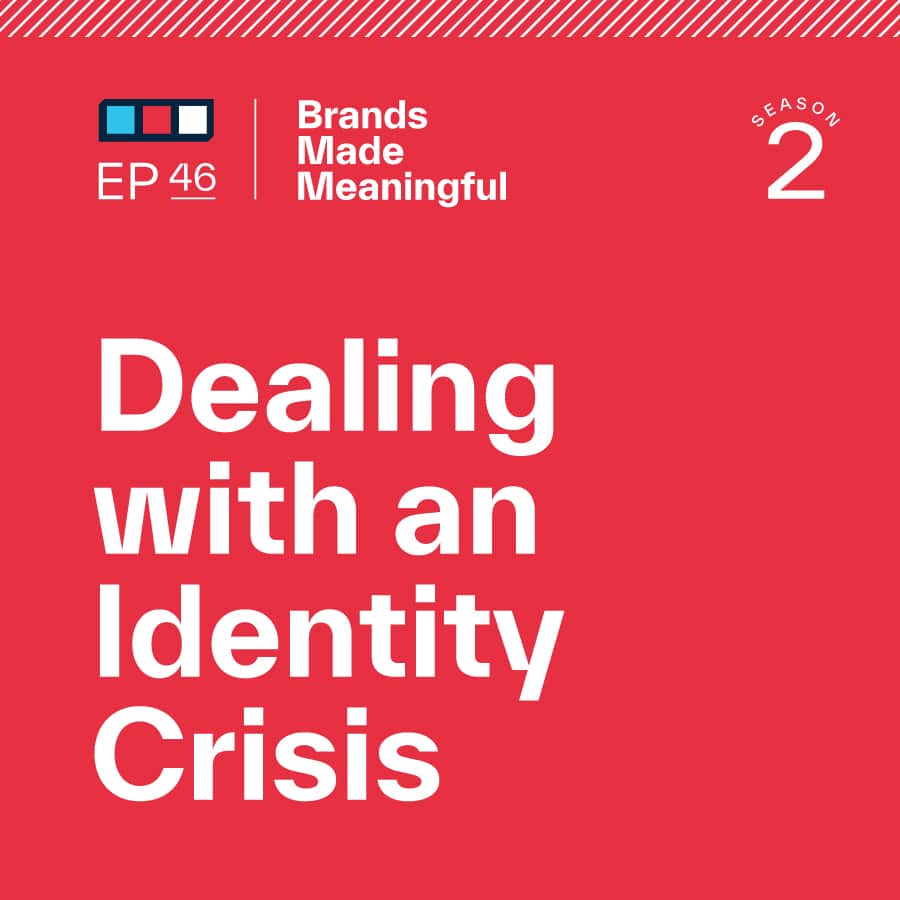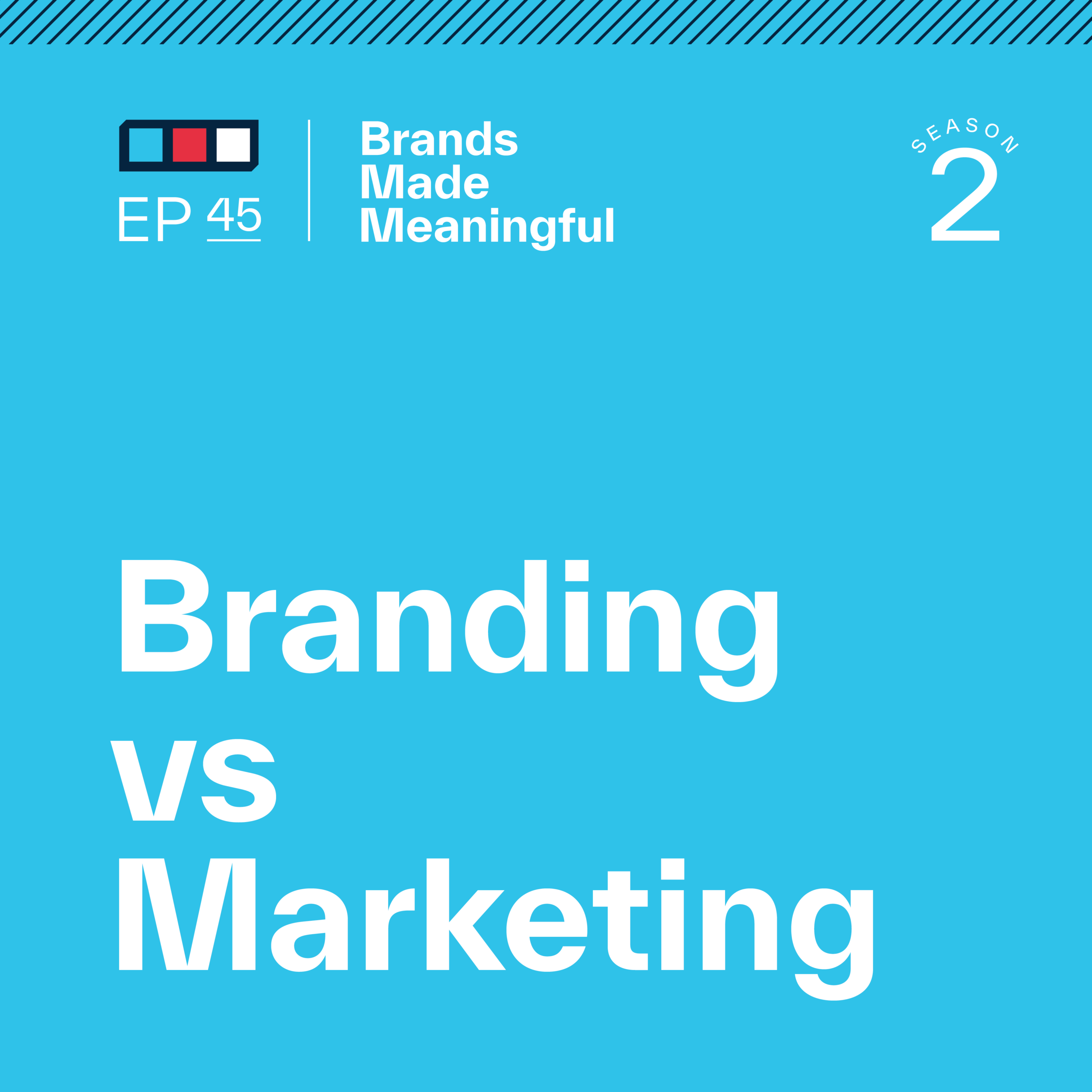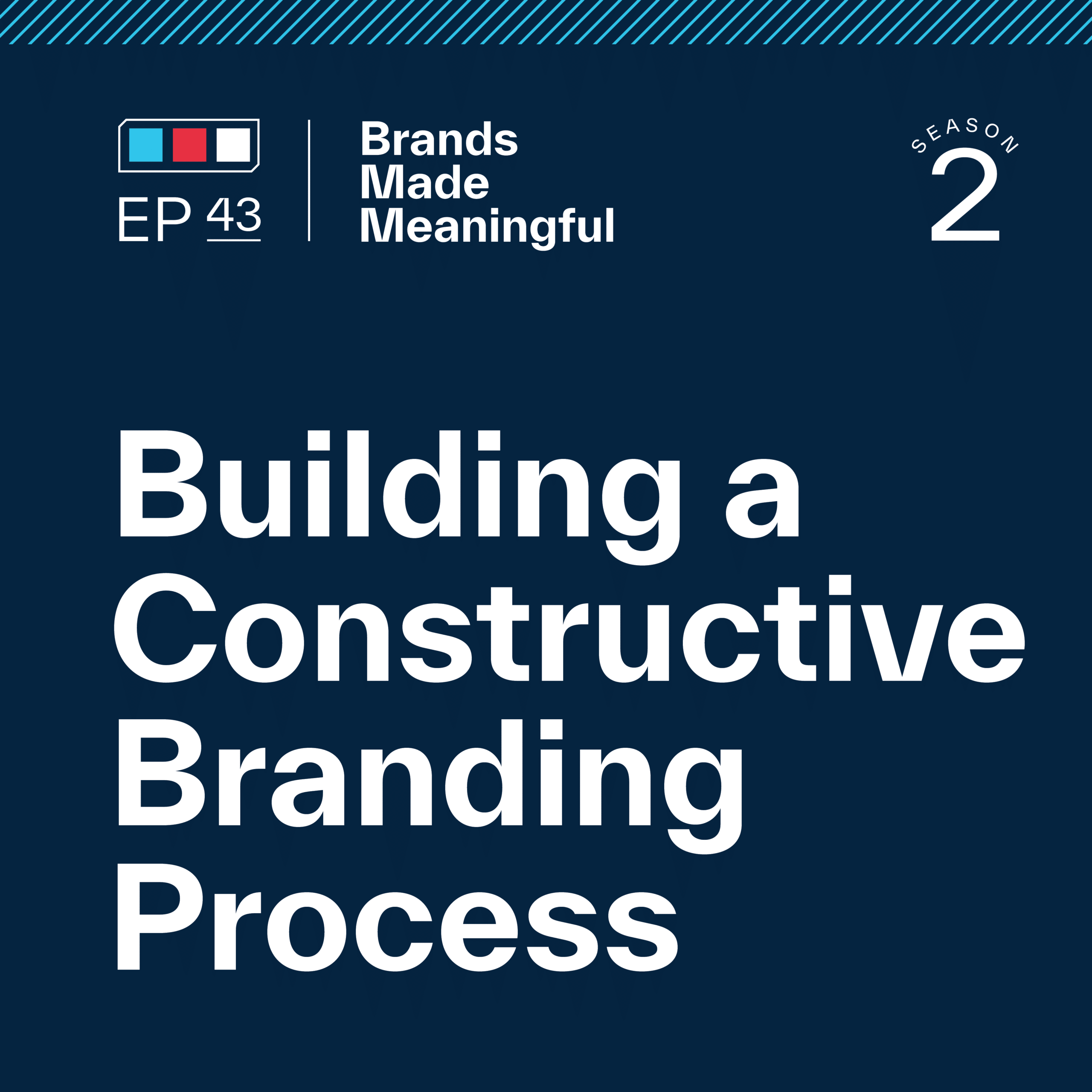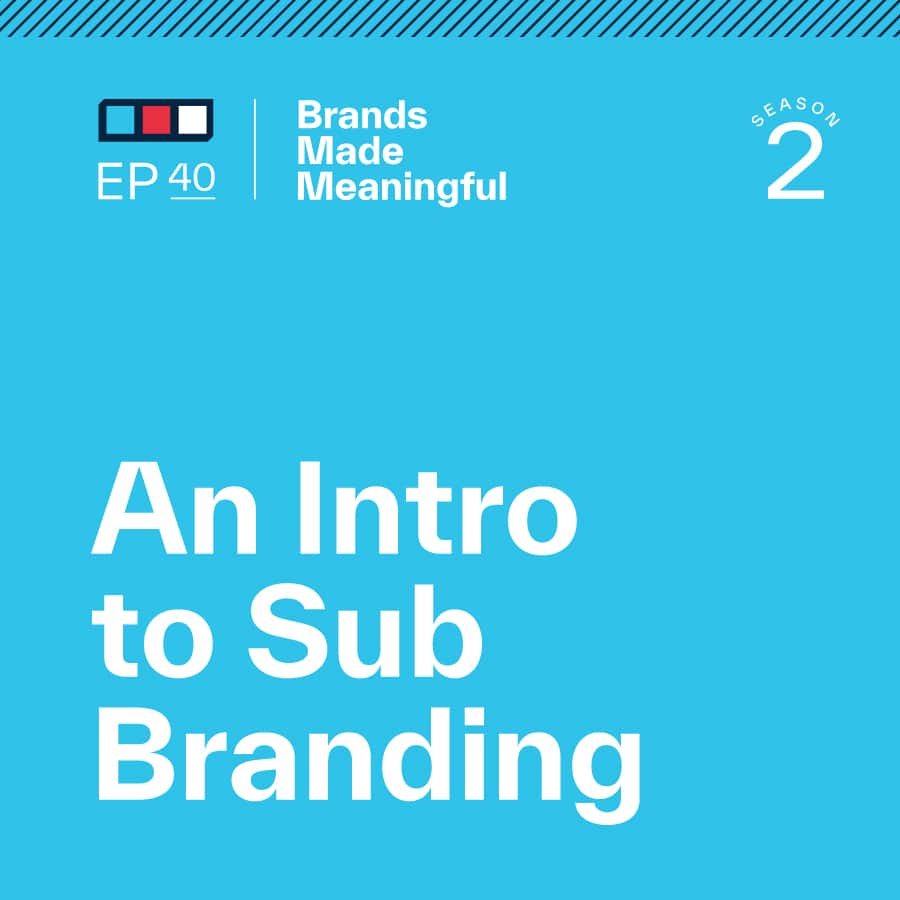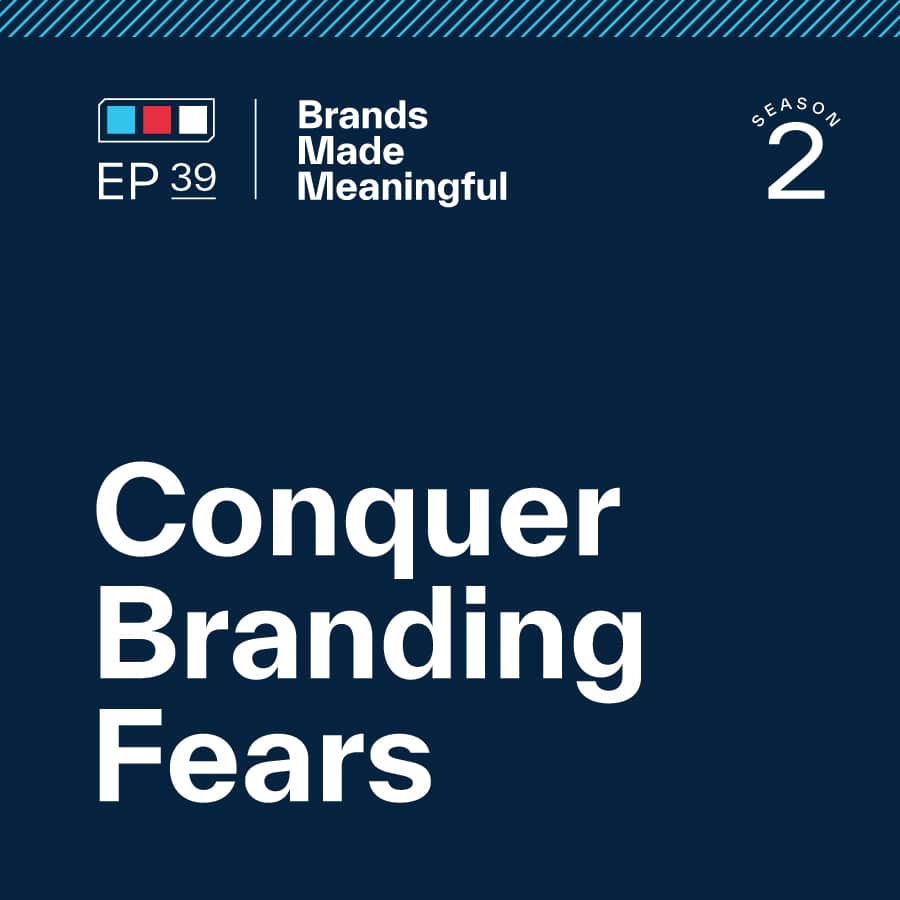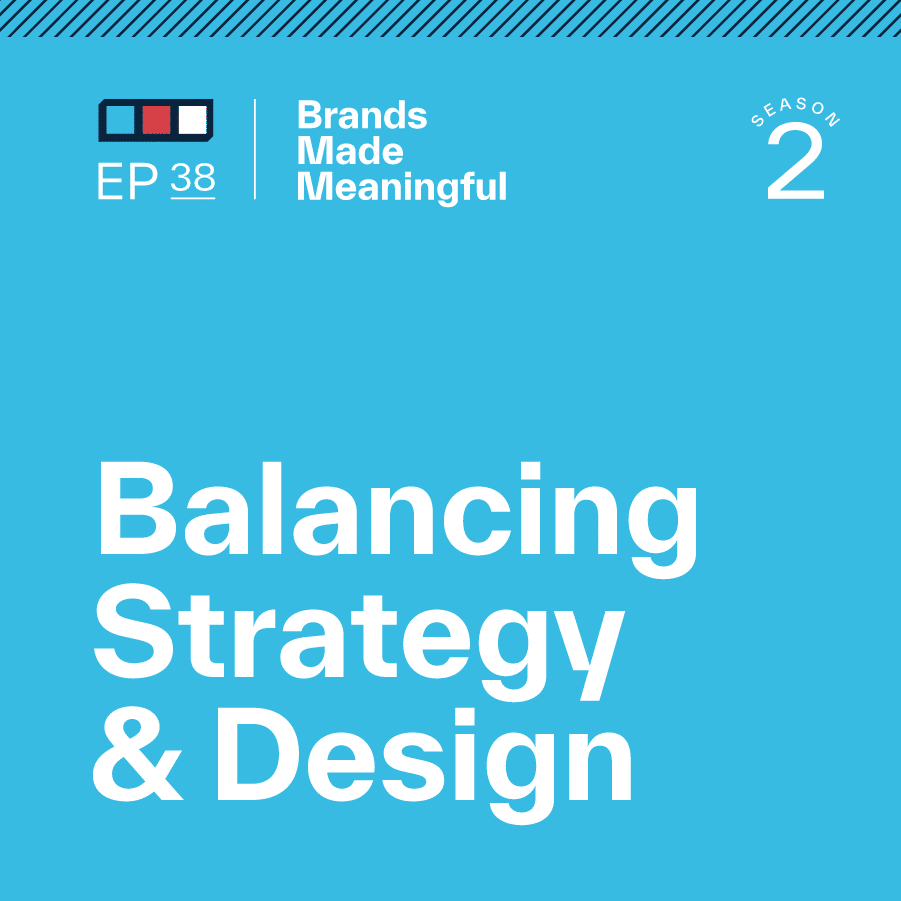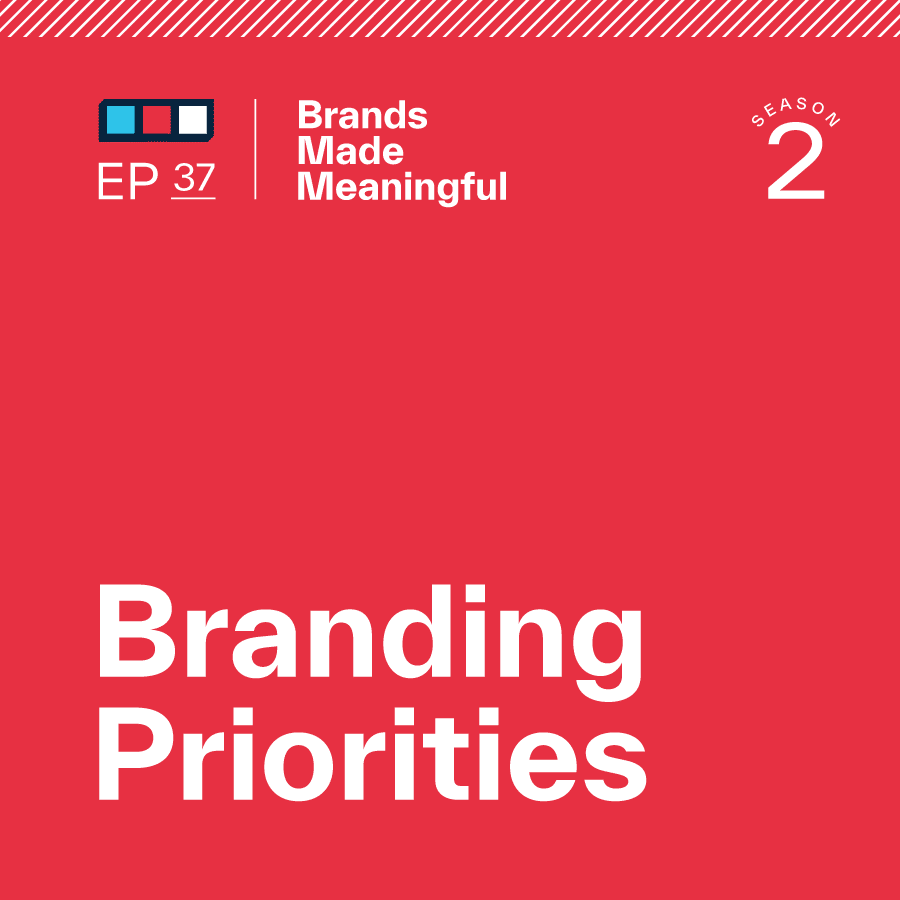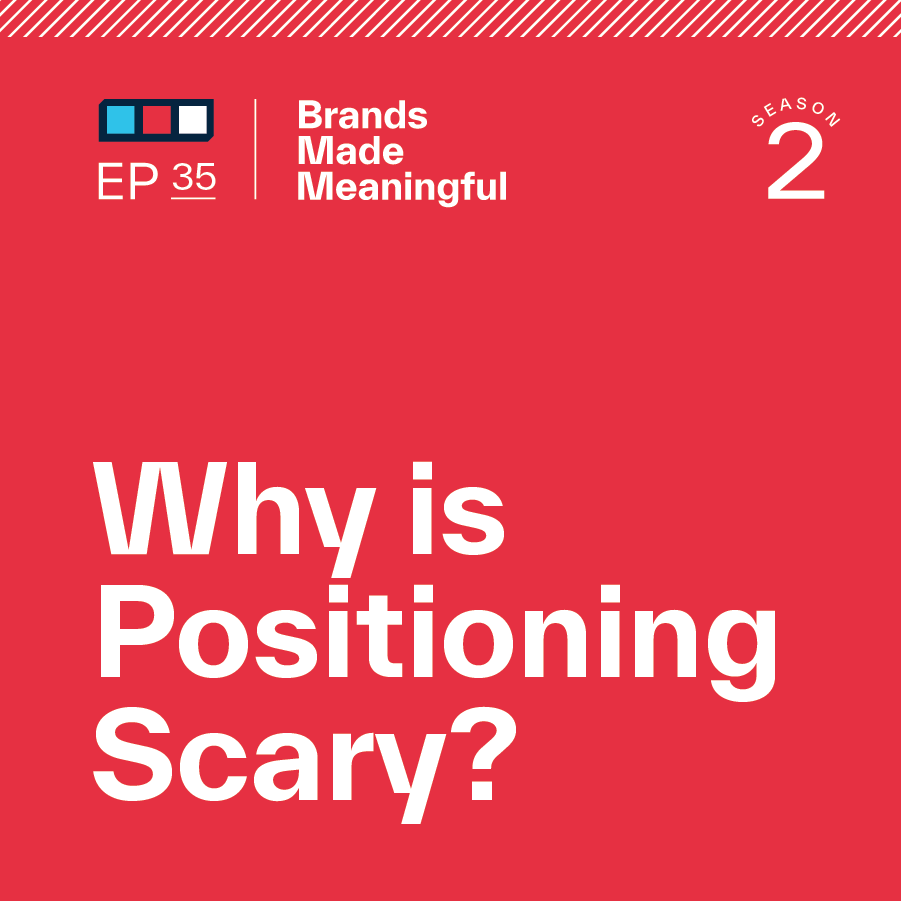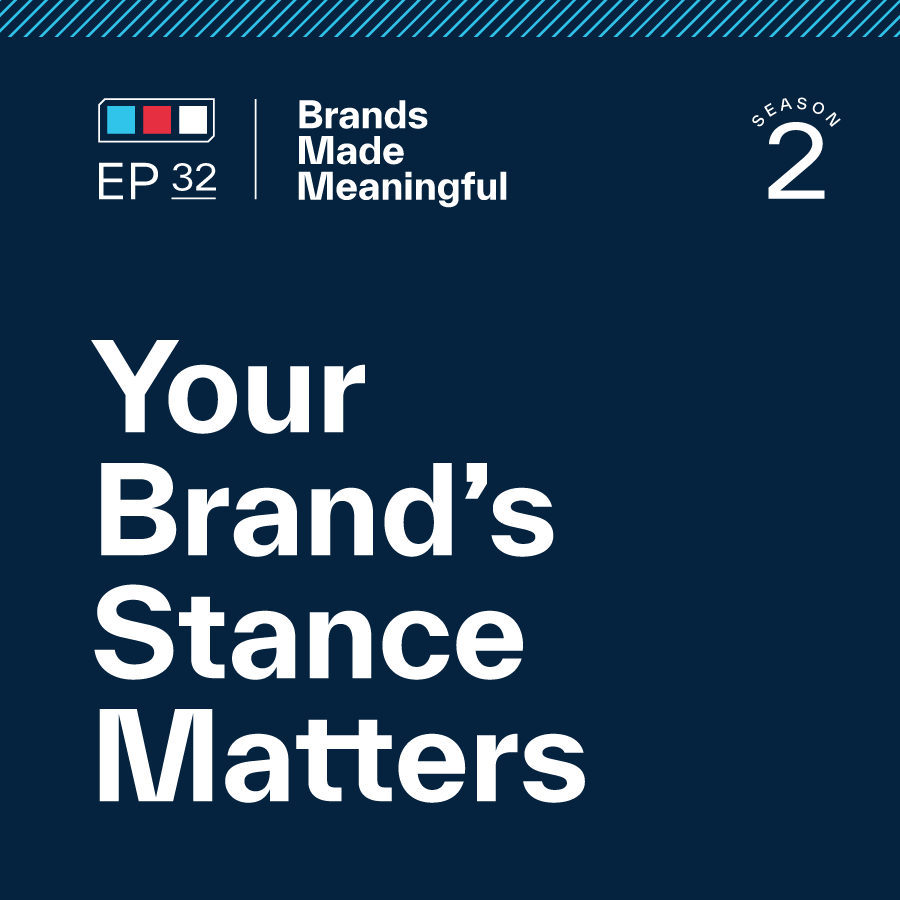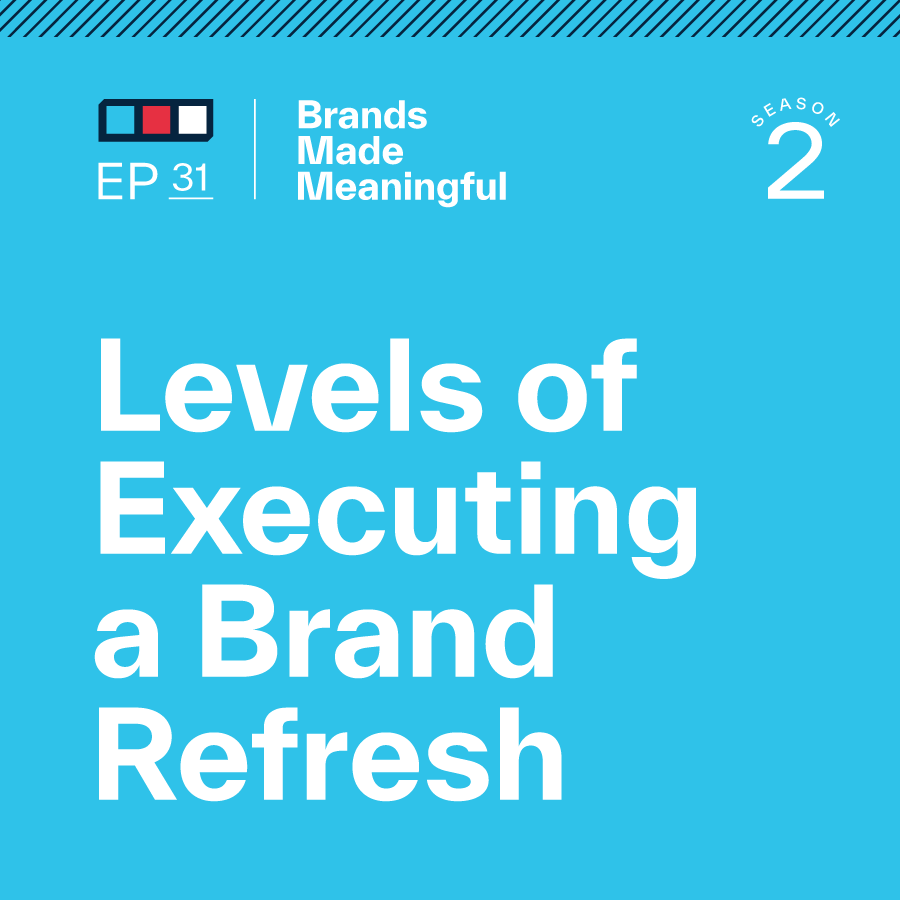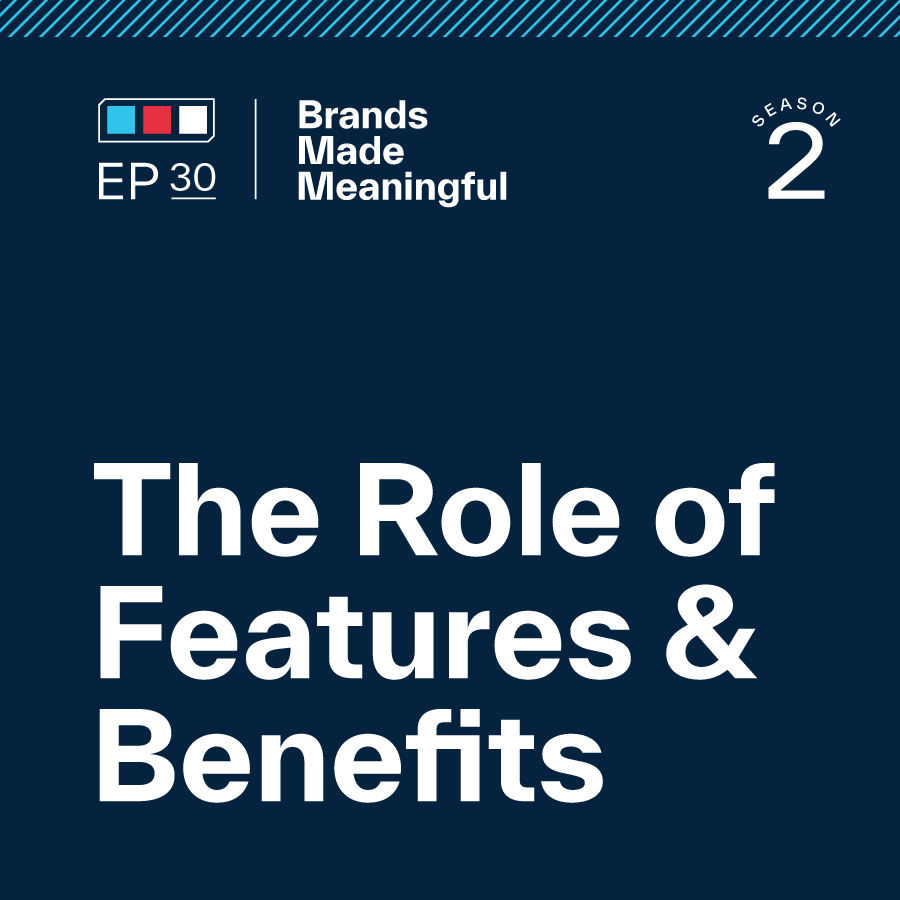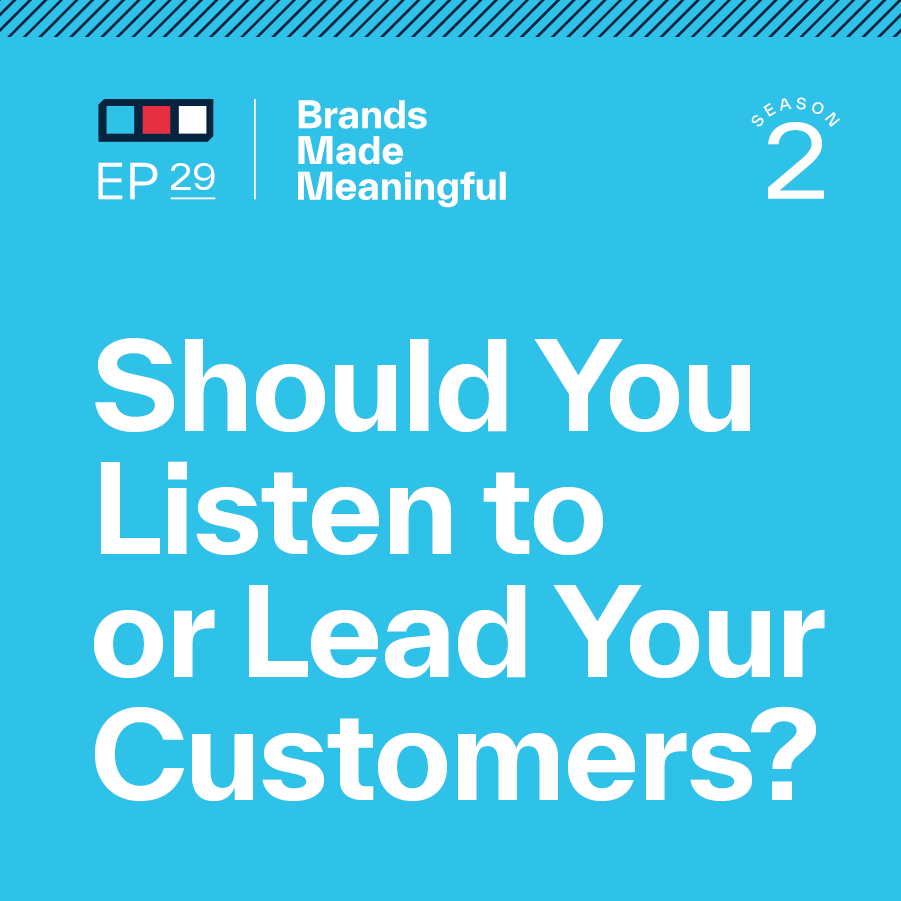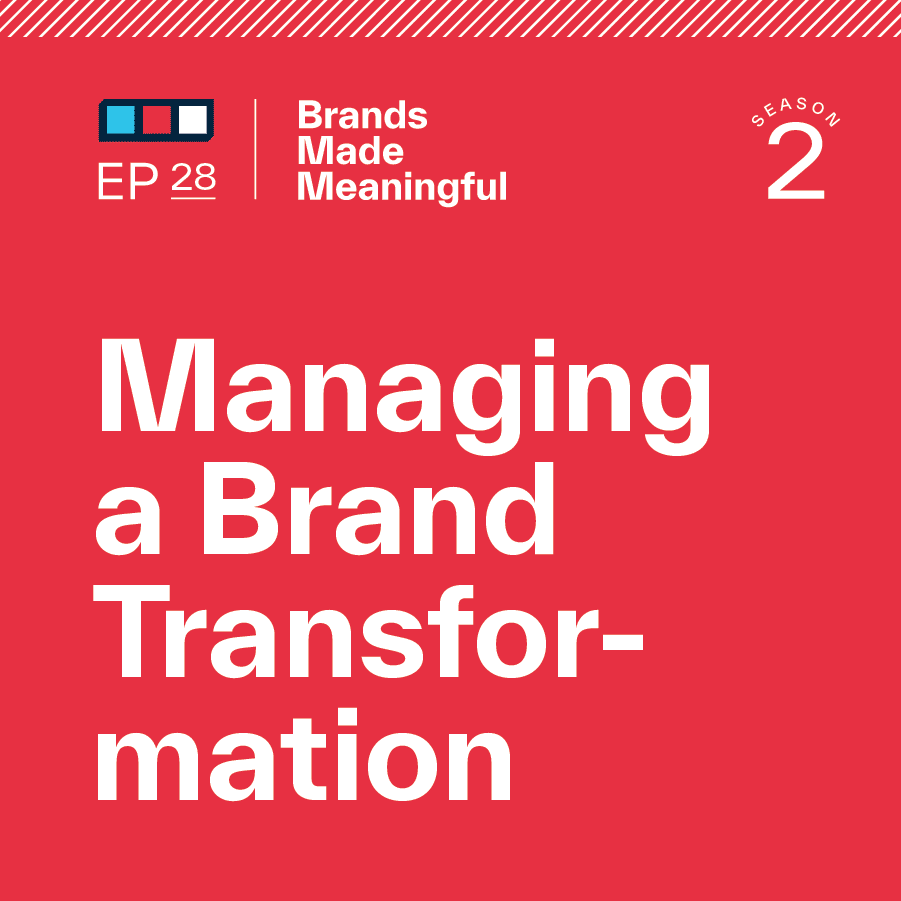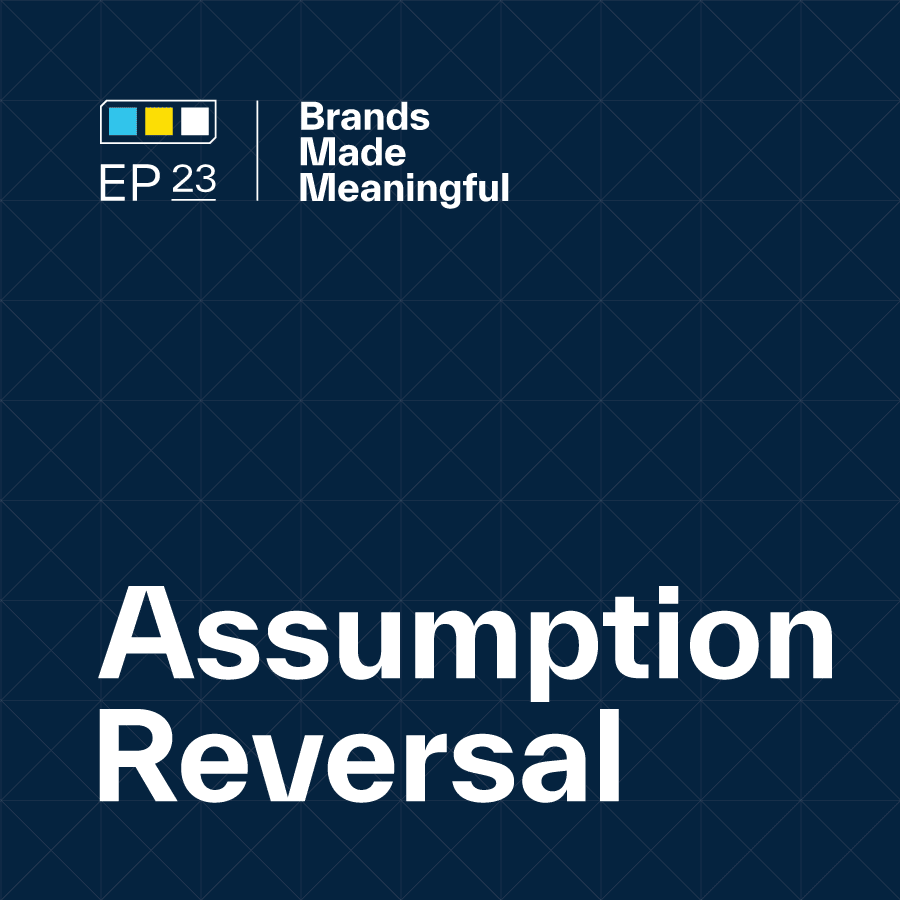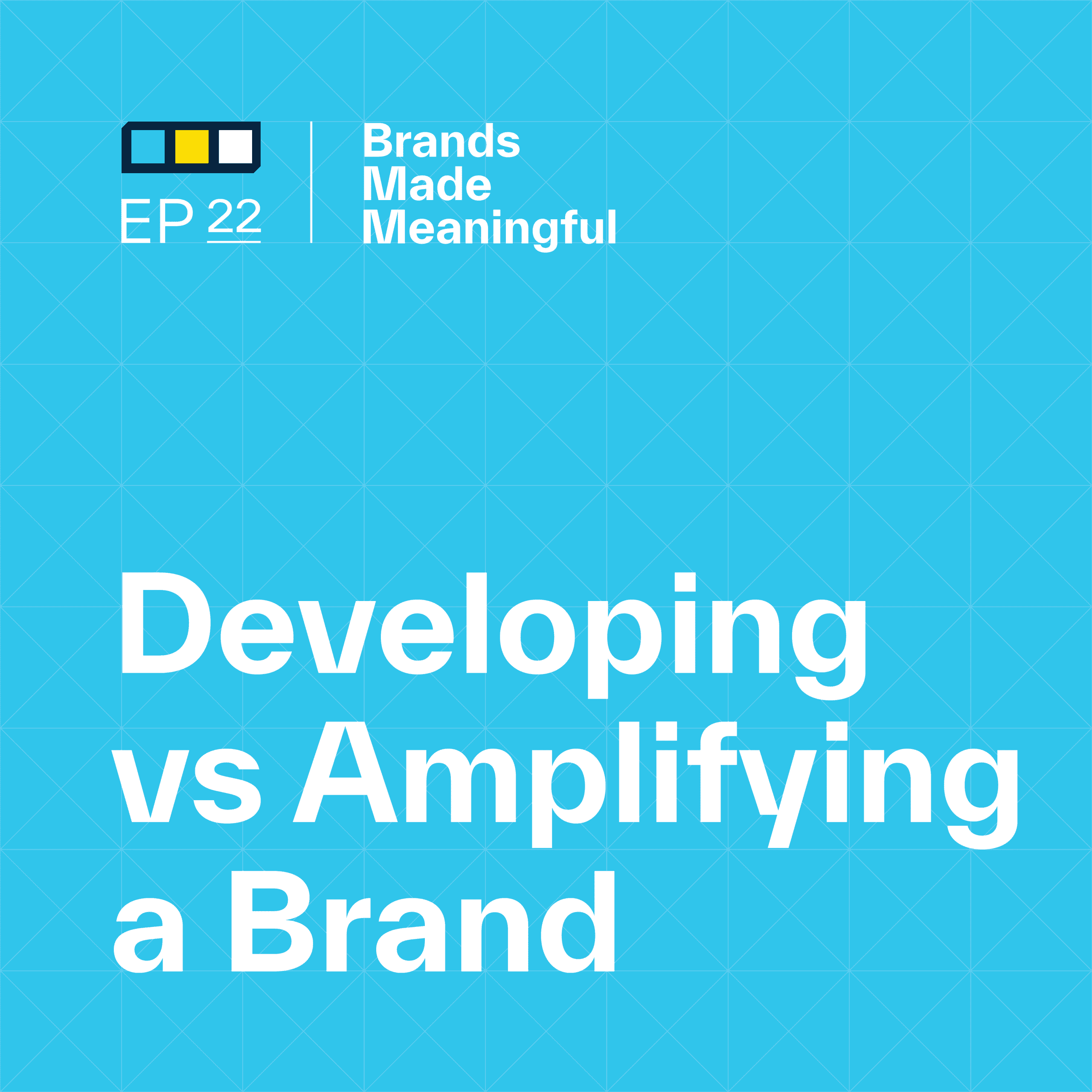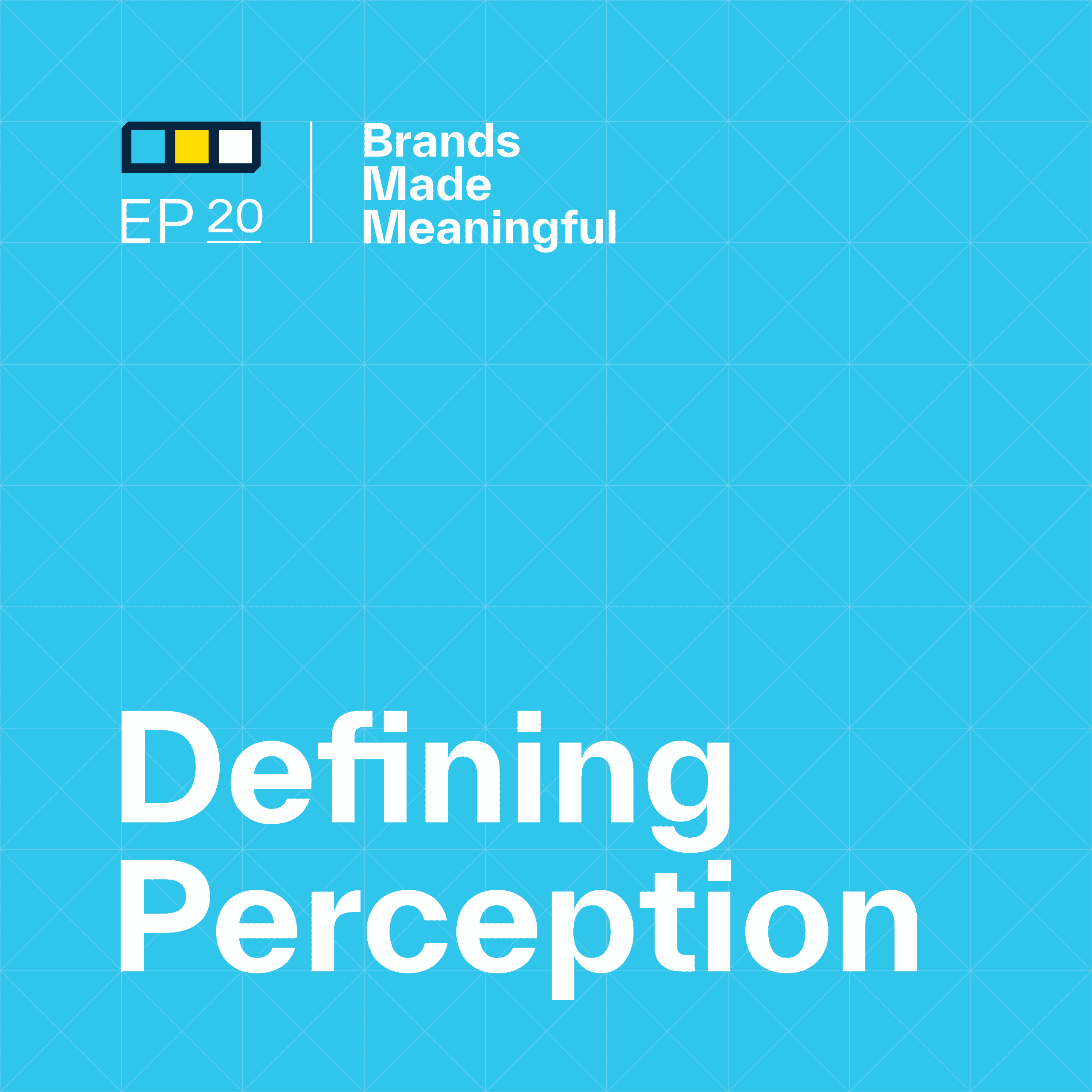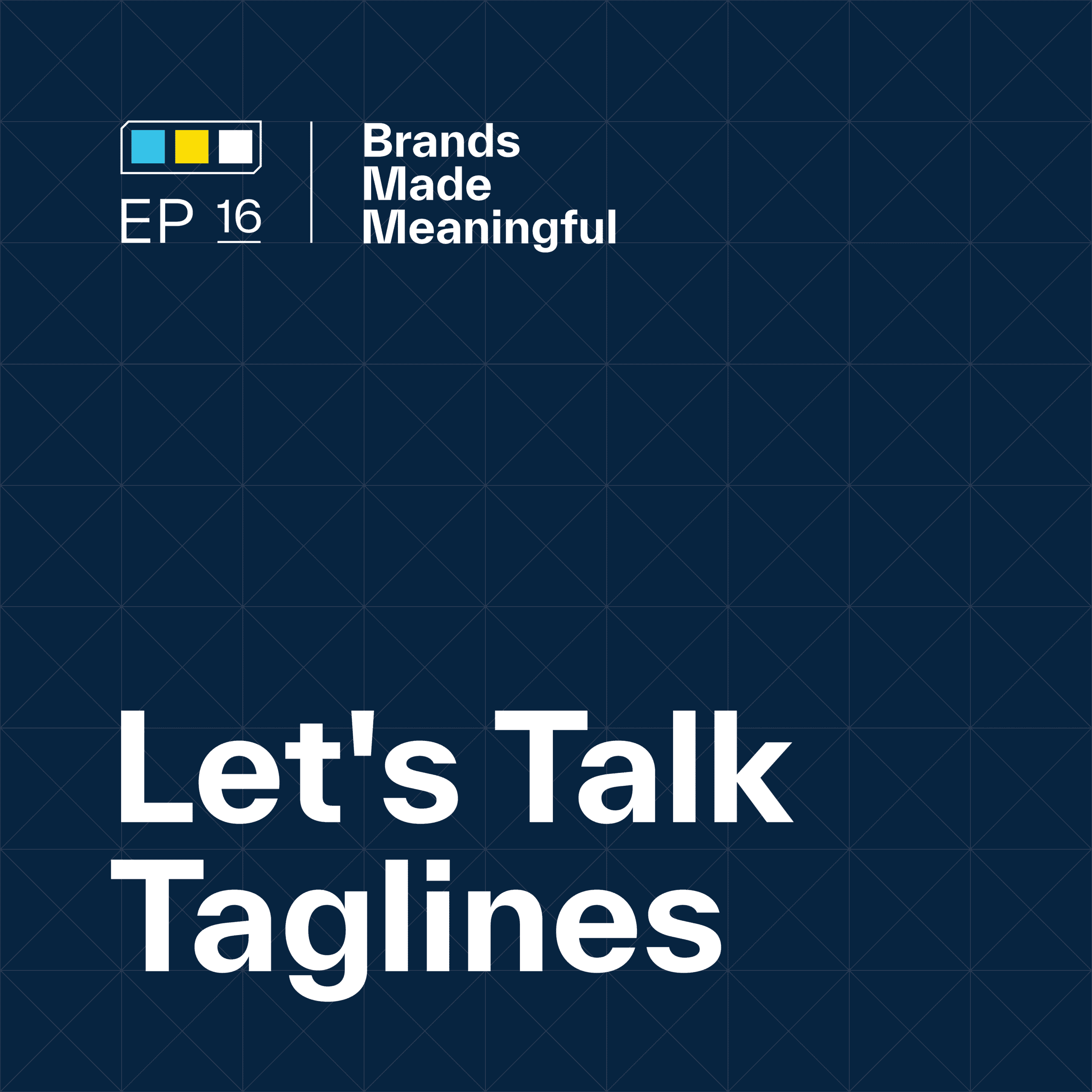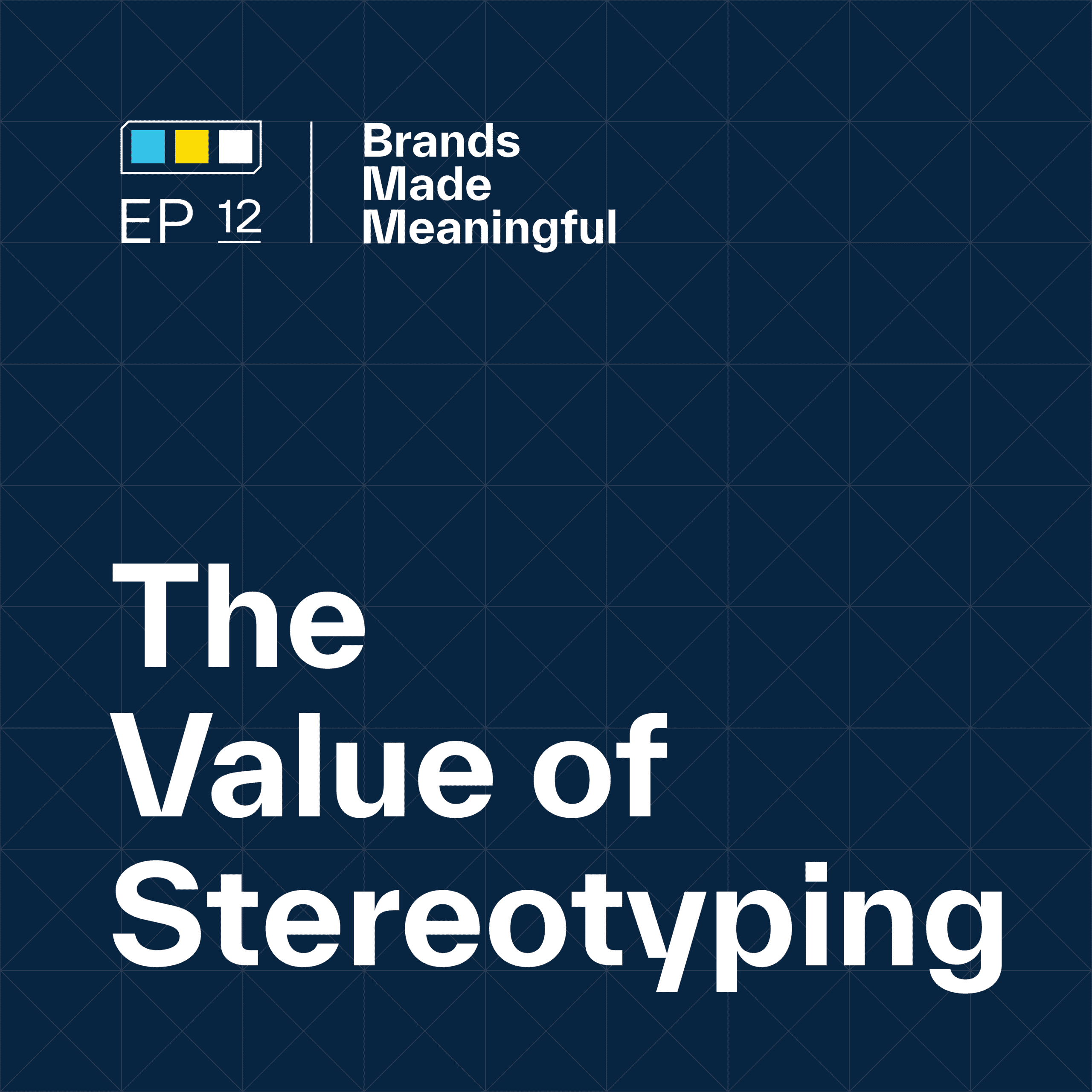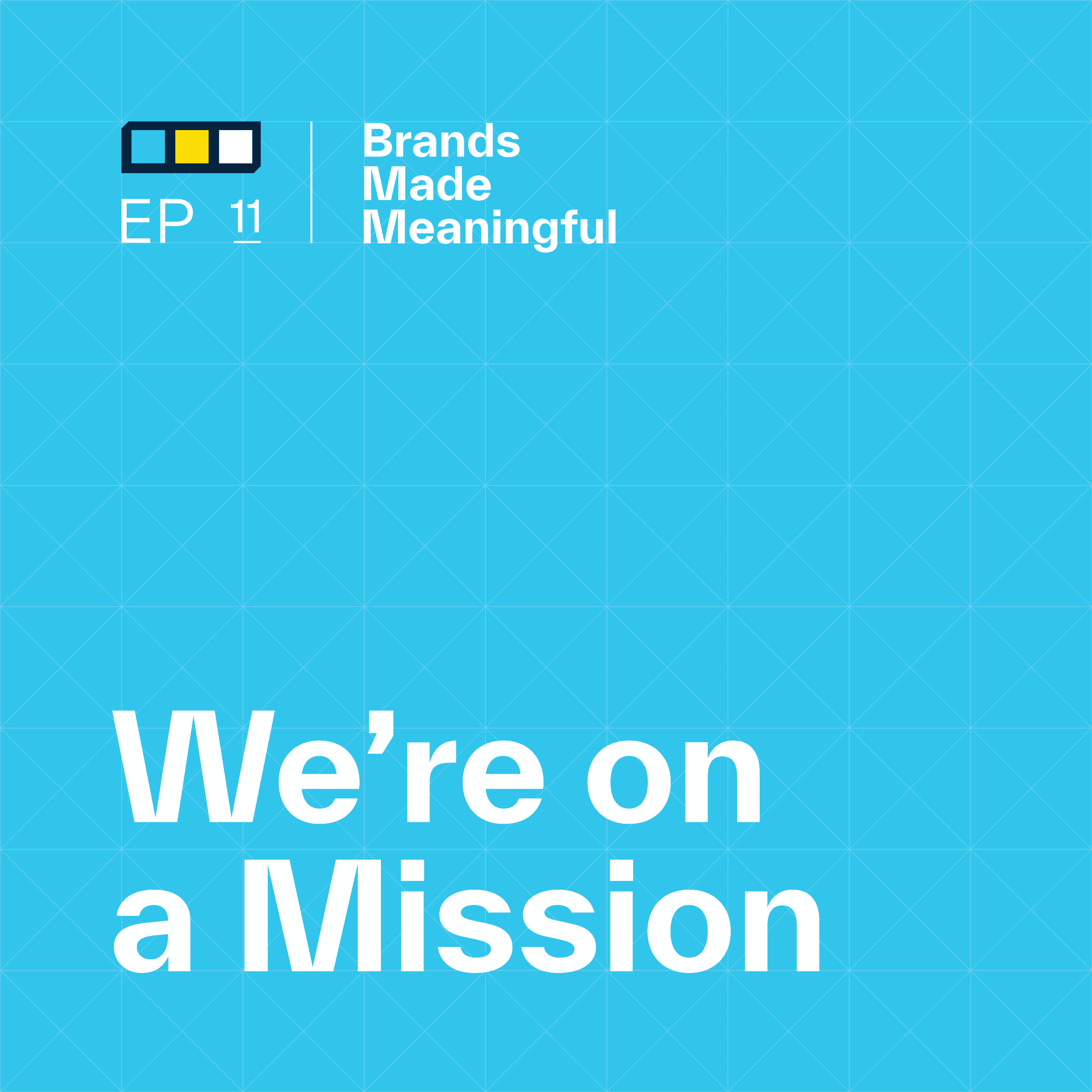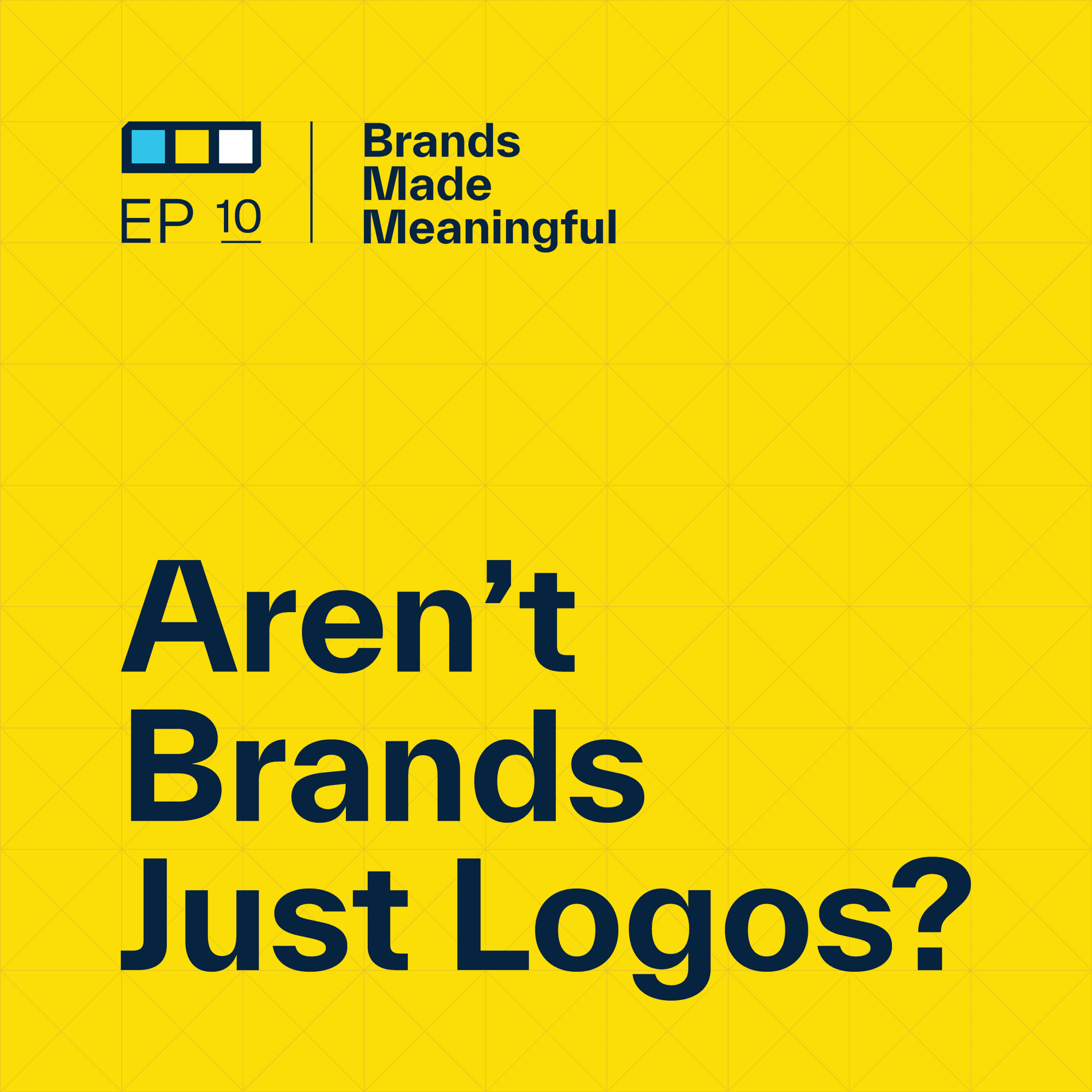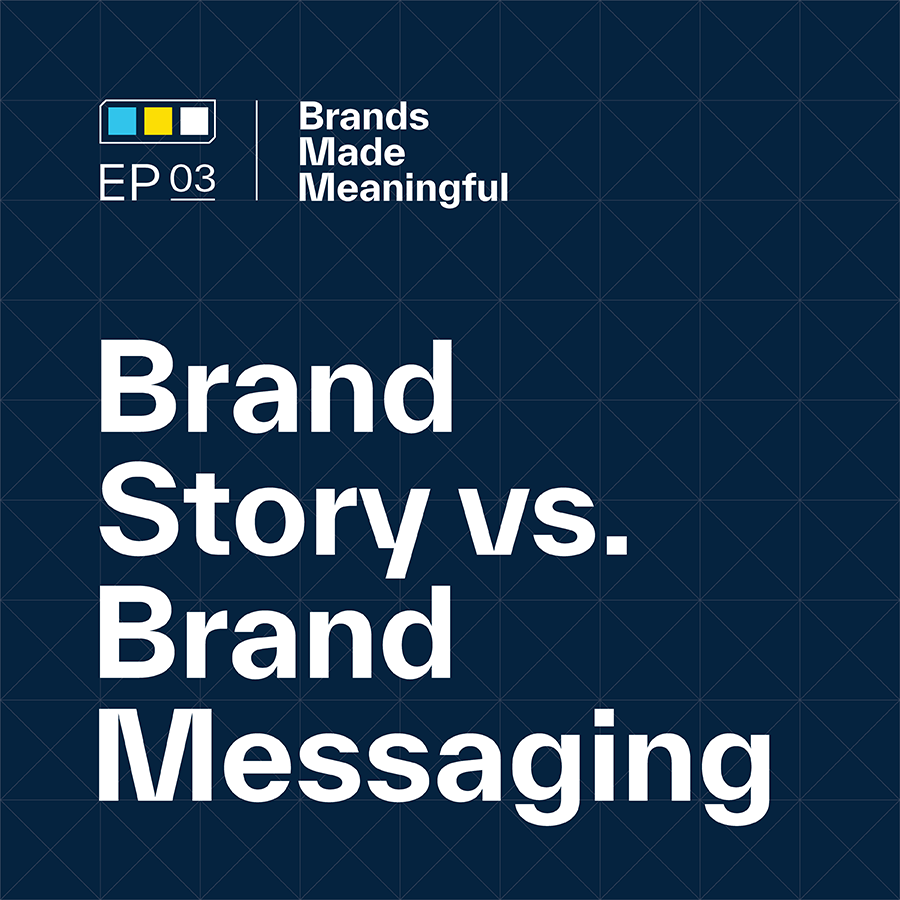EPISODE 55
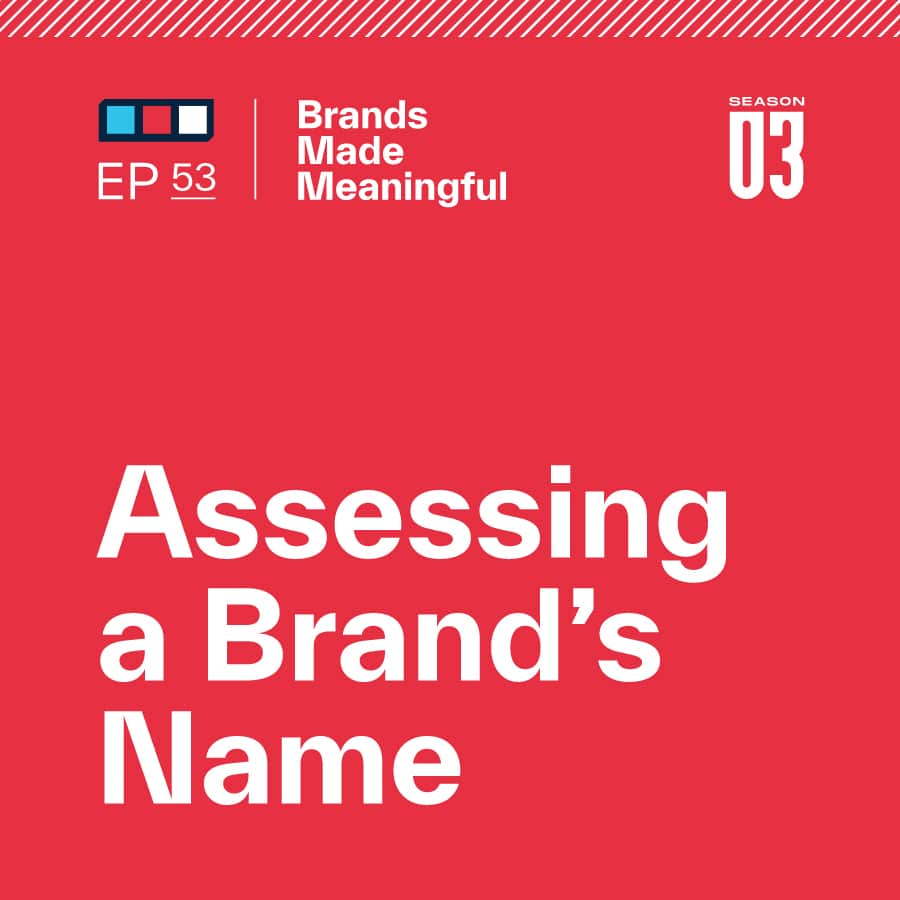
The Loudest Voices in the Room
Episode 55
Derek and Tucker talk about gathering feedback while prioritizing every voice.
EPISODE TRANSCRIPTION
A common problem we run in to is trying to keep the loudest voices in the room at the weight they need to be at.
Derek This is something we see in nearly every project.
Expand Full Transcript
Derek Keep it in context.
Tucker Context is a huge word here. What we mean by the loudest voice in the room is we need to be mindful that the people who are the most boisterous are the people who have their chests out and they’re really passionate about something. They are only one subset of the opinion of everyone, or even the target market, so we need to take it with a grain of salt.
Derek It’s one voice. It’s one opinion, in this membership case, among 600 people or among the board. Like you said, this happens all the time, and it happens in life and all aspects of business. But as we think about this through the branding lens, if we, as the company who’s hired to help them, make the mistake of taking the loudest voice as the only important voice, we’re going to run into some problems.
Tucker Our job is to make our clients happy. Everyone thinks of that as the primary goal. I think that another primary goal is to get it right. And so it’s really hard to say we’re trying to make everyone happy, but you can’t make everyone happy. But you have to do it right. So, for us, we’re going to try to make everyone happy, but we know we have to make the project go in the right direction, using the right thoughts and using those insights correctly.
Derek Our job is to do right by the entire organization, to do right by the client, even when the loudest voice might be the person who is the lead or the person who even hired us. They hired us to do right by their entire organization.
Tucker So, a little bit of context, what are some of the risks that we take if we just listen to the loudest voice in the room? What happens if that voice is the primary thought that we run through?
Derek The biggest one for me is it’s an extremely limited perspective. It’s only one person’s point of view. Now, if that’s a solopreneur or an independent organization that one person owns, then that’s fine. Their perspective is what counts. But when you’re dealing with a team of people at a sports organization, at a club, or within a business, that one person’s perspective might not have taken all of the information into context, and it might be colored and/or skewed and only following their insight, their opinion. It might have us miss the larger picture by only seeing it from their point of view.
Tucker It creates blind spots because they don’t know everything. And they aren’t everyone and they don’t talk to everybody either. So there’s this level of their personal bias which is likely to come in. When we work on projects, our personal biases come out too. It’s super hard to say that if we only listen to this one person, then we’re not getting the full picture.
Derek I think the blind spots might be the biggest thing. I mean, we’re missing insights. We’re missing valuable points of view, information, perspective, alternate solutions, different ways to approach this, and other things that are important that maybe the quieter voices in the room haven’t had the opportunity to be heard yet.
Tucker For most of the people we work with, this is the first time they’ve done this, so it’s natural for them not to want to step up and say something because they’re not quite sure how this works. They’re not really sure if they should step up and say this or that. And so what we do with that is to be mindful that not everyone has done these projects before and they just don’t know how valuable their opinion is quite yet. The next one is conforming thoughts. So this, for me, is really important because someone, let’s say it’s the CEO, says something and there’s a bunch of people in the room that want to align with that thought because they feel like it’s beneficial to them in some capacity. Excuse my language, but we call this saving their asses. It happens a lot more than you’d think when someone higher up on the ladder has said this one thing and now everyone else agrees with that in some kind of capacity. It’s not realistic to say everyone agrees with that CEO every single time.
Derek But it takes some bravery to not just disagree but to appropriately pose an alternate option or additional information and to not feel like you’re hanging yourself out to dry, putting your job or your position at risk by including whatever the insights are that you think are valid to this whole branding thing that we’re working on that we keep talking about.
Tucker And some people just aren’t naturally confrontational. If you’re not naturally confrontational, someone might say something and you might say, Yeah, I agree with that, I guess. But you might not have if they didn’t say that, or you might have come up with a completely different thought. You just don’t know. So there’s this level of some people need bravery, but also it’s just natural for them to cling on to other people’s ideas because that’s just the natural way it works.
Derek We’ve also run into the exact opposite where we’ve got 7 or 8 very, very strong voices in the room, and all of them think a little bit differently, and all of them need to be heard. That’s a whole different scenario to navigate.
Tucker That’s a totally different podcast.
Derek The next one we titled inequality. The loudest voice isn’t always necessarily the person who actually has the most experience or expertise in this matter. They might have the most authority within an organization. They might be the CEO. So they do have the final say, but the CEO’s expertise might not be in this very specific initiative.
Tucker There’s a saying that usually the smartest people in the room are the quietest people in the room. I don’t know if that’s right or not, but that’s kind of what this is based on. Sometimes you can’t confuse loudness for competence. So not everyone who’s loud knows what they’re talking about. And not everyone who’s loud understands all the different areas that we need to do this for. So that kind of inequality of prioritizing certain voices, because they’re louder, creates this level of only listening to someone because they have that natural instinct to say what they think.
Derek Exactly. Another challenge or problem with only listening to the loudest voices in the room is the potential to miss the mark, to make a mistake, by basically making a decision that wasn’t yet fully informed.
Tucker This comes from my thoughts about us and our team. We can’t be the loudest people in the room either. We’ve done hundreds of branding initiatives with different people. Every single one is different. So what we can’t do is come and say we’re the experts, pound our chest, and say that you need to listen to us about every single piece of this because we don’t know everything either. Every project is a new opportunity to learn something completely different. And, to me, that is this potential for mistakes. If we don’t listen to the people who aren’t the loudest in the room, then we’re really opening the door to missing something that can save us in the long run with a project. And that’s happened time and time again whether it’s at the beginning of a project or whether it’s at the end. Think about efficiencies in just listening to everyone. It might take more time on the front end, but it saves time long term because you find out things that kind of make it easier for you to make those decisions.
Derek It’s our job to do that due diligence, too. We’re working with a club that’s looking at or considering a rebranding initiative, a brand refresh. And we interviewed a cross-section of about 25 members of the club. Our assumption is the list of people that we’ve decided would be good people to talk to, that list was provided to us by the committee. And so it’s a little bit on us to be talking with them to make sure that that list of people does include enough of a cross-section of enough of the membership so that we’re seeing the full picture and not just the 25 people that the person who put the list together already knows is going to back up his specific point of view. There’s some politics that we’re navigating. We’re navigating change management. But again, it’s our job to do right by the client in this case.
Tucker Even outside the club space with projects within the professional team space, there is a subset of fans. There are all these different fan categories. If we listen to one fan group, we might be alienating a different one because they are really passionate about something and this other group isn’t quite passionate about that. But if you go all in on this one category, you’re going to lose the other one. This is like the potential for mistakes. If we’re only listening to the people who might make us feel that this feels right and not listening to everybody, then it creates blind spots. That’s kind of the big theme of this conversation. The last part is stifling creativity. I just had a conversation with one of our designers this morning, and he said that we can’t leave a stone unturned. What he was referring to is design-specific stuff. But this is perfect for this as well. Sometimes when we settle for one answer because it’s just the quickest and the easiest answer, it doesn’t open our minds up to what’s possible and challenge ourselves to be brave and to do something different and surprising rather than doing something obvious and right in front of you.
Derek Exactly. Sometimes the first idea does end up being the right idea, but sometimes the best idea takes a little bit of sweat, blood, and effort because we can’t see it until we see something else. And it’s a whole process of discovery and uncovering. And it’s that next thing that we tried that actually got us to the final right decision – the really authentic, relevant, surprising one.
Tucker I totally agree. Other than the blood thing. We don’t spill blood in any of our projects.
Derek Back in the old days, there were some exacto blade incidents. But, yeah, metaphorical blood. So how do we solve this? For an organization that is about ready to take on this initiative, or who’s already doing one, or a creative agency that’s teeing something up – what’s the solution?
Tucker The short answer would be research. In-depth research would be a better way of saying that – qualitative, quantitative research that helps us balance it. The other way I like to say it is we want to get perspectives. From a data standpoint, it’s helpful to have non-emotional people say, Here’s what they actually think and said. Then we can go from just data points and that’s great from a quantitative standpoint. Qualitative is one-on-one interviews. It’s getting them out of a group. A lot of people love focus groups because of the efficiency of it. I think that we’ve found the most effective way to do it is one one-on-one interviewing with members, whether it’s fan groups, whether it’s a specific fan, or whether it’s staff. We’re talking about getting outside the meeting room, getting outside the boardroom for a second. It’s amazing how many conversations you can have when you have them with a client to say that conversation would never have happened in front of their entire team.
Derek It’s a confidential, safe, one-on-one environment where we’ve given them the license to speak without somebody else talking over them, without them being afraid to put themselves at risk because somebody else was in the room. There are projects that we’ve worked on that would never have been as successful as they were had we not learned what we learned in a bunch of one-to-one conversations. I think those are the most helpful parts of uncovering the blind spots, validating some thinking that they already believed, and then uncovering some new opportunities that we would never have thought of had we not had those opportunities to talk one-on-one.
Tucker And I think of those one-on-one conversations as casual. When we do our interview process, it’s not a very formal sit-down, here’s who we are, here’s who you are, I need to answer these specific questions. It’s an informal conversation about what’s happening and what needs to happen. And in those casual conversations, people just kind of unlock, and shoulders go down. People are like, Oh, we’re talking. Okay. Sounds good. There is no covering your backside on any of this stuff because what you’re worried about is whatever everyone else thinks. But when you have a confidential, casual conversation, people are just like, Here’s what I actually think. Then we do our job by taking that and asking how we can mold a storyline and how we can mold a strategy around that knowing we can’t necessarily use their quotes and saying, Well, the CEO said this specifically.
Derek: It makes us smarter and makes us do our job better. It also helps with the organizational side of change management in giving a bunch of people the opportunity to feel included and involved and not stifled in a bigger meeting setting when they didn’t feel like they had the opportunity to give their two cents. [00:16:00][18.3]
Tucker Overpowered or any of that kind of stuff. I think the phrase for 2024 might be change management. It comes back every single time when we say what makes a really good project is if we have good change management. If people are honest with what’s going on, if they’re informed and they understand how we got here and where we’re going because of how we got here, it makes a huge difference. Takeaways – listen to people. Listen to people and don’t be afraid to not listen to certain people.
Derek Just because you listen to somebody who has a different point of view, it doesn’t mean that that other point of view has to be right, or that that point of view is ultimately going to be the thing that you decide to do, but it’ll help you make the decisions that you do make smarter and more informed. And ultimately, I think it will make your branding initiative more successful.
Tucker The easy way is not always the best way would probably be my biggest takeaway from this. There are a lot of projects we’ve done where you would say, Wow, the CEO thinks this and we’re just going to do it. But just because they’ve just cut through the “let’s do this” doesn’t necessarily mean it’s the right way. And I know I’m picking on the CEO over and over again. That’s not always it. Sometimes it’s the VP of something, but it’s something to keep in mind. Just because it was easy and quick doesn’t mean that it was the right decision.
Derek It’s the cliche of going slow to go fast. Figure out where you’re going before you just start running. And then once you get that arrow pointed in the right direction, you can sprint. But gather as much information as you can and just make sure you’re hearing the right information and all the information, not just the loudest information.
Tucker Thorough on the front, efficient on the back, is how we think about it.
Derek I like that. You should start using that.
Tucker All right. Write it down.
Derek Until next time.
Tucker Thanks.
Derek Sussner is a branding firm specializing in helping companies make a meaningful mark, guiding marketing leaders who are working to make their brand communicate better, stand out, and engage audiences to grow their business. For more on Sussner, visit Sussner.com.
More Episodes Like This
Changing a Club’s Membership ModelEpisode 83
Derek and Tucker discuss key considerations and challenges when changing your club’s membership model.
Connecting a Club with its Story with Jackie CarpenterEpisode 82
Derek and Tucker are joined today by Jackie Carpenter, author of People First.
Branding a Club AnniversaryEpisode 81
Derek and Tucker discuss the unique opportunity presented by milestone and anniversary dates for private clubs.
Private Club Storytelling with Ricky L. Potts, Jr., CCMEpisode 80
Derek and Tucker have the pleasure to speak with Ricky L. Potts Jr. about how powerful storytelling can be for your club members.
Opportunity in Club Facility RenovationEpisode 79
Derek and Tucker discuss pivotal key moments in your legacy and how to transform your story through renovation.
The Evolution of Club Members with Jon LastEpisode 78
Derek and Tucker are joined by Jon Last from Sports & Leisure Research Group to discuss the evolution of club members.
Member Branding vs. Product BrandingEpisode 77
Derek and Tucker discuss the challenges their client's have moved through when approaching differing styles of branding.
The Role of a Private Club's LogoEpisode 76
Derek and Tucker take a look back on private club logos they've designed over the years and explain the strategic reasons behind their choices.
Club Brand GovernanceEpisode 75
Derek and Tucker divulge the steps to evolving your brand while retaining your core values.
Seasonal Member MerchandiseEpisode 74
Derek and Tucker take a look at crafting specific merch to celebrate landmarks and special times of the year.
Who is Sussner?Episode 73
Derek and Tucker take a break from talking shop to talk about who they are and what they stand for.
Club Identities Beyond AmenitiesEpisode 72
Derek and Tucker discuss what it takes to stand out in unique ways for your club.
Little Things Mean EverythingEpisode 71
Derek and Tucker take a look at the often missed and easy to overlook.
Build Flexible Brand SystemsEpisode 70
Derek and Tucker break down the building blocks for long lasting branding.
The Club at Golden ValleyEpisode 69
Derek and Tucker take a close look at one of their recent rebrands.
When to Launch a Club RebrandEpisode 68
Derek and Tucker break down how to find the perfect timing when launching a club rebrand.
Steps to Launching a Club RebrandEpisode 67
Derek and Tucker break down the steps to take and the reasons why you should consider a club rebranding.
Brand Marketing vs. Brand DesignEpisode 66
Derek and Tucker define the line between marketing and design and how they intersect to inform one another.
Building Brand GuidelinesEpisode 65
Derek and Tucker show us how to build infrastructure guidelines to unify your brand experience across the board.
Club Identity SystemsEpisode 64
Derek and Tucker cover what Identity Systems entail and how to discern between internal and external methodologies.
Navigating Branding With a BoardEpisode 63
Derek and Tucker bring clarity to uniting your company under one cohesive vision.
Putting a Committee TogetherEpisode 62
Derek and Tucker assemble your need-to-know facts when putting together your committee.
The Guiding Principles of Private ClubsEpisode 61
Derek and Tucker go over the top ways private clubs can find the balance between pleasing old members while attracting new ones, all while making moves towards the future.
How Color Affects PerceptionEpisode 60
Derek and Tucker cover how to best convey your business with color.
Brand EcosystemsEpisode 59
Derek and Tucker break down how to craft effortless experiences when considering your brand as a whole.
6 Types of Brand TransformationEpisode 58
Derek and Tucker dive into 6 distinct types of transformations for a wide range of brands.
Tournament Branding For ClubsEpisode 57
Derek and Tucker discuss designing and delighting your club members with tailored events.
Brand Promoters & DetractorsEpisode 56
Derek and Tucker discuss how high level promoters increase your NPS and how to turn the tides on your detractors.
The Loudest Voices in the RoomEpisode 55
Derek and Tucker talk about gathering feedback while prioritizing every voice.
Determining A Primary AudienceEpisode 54
Derek and Tucker discuss if and when you should be honing in on your audience vs. casting as wide a net as possible.
Branding For ExclusivityEpisode 53
Derek and Tucker discuss the intricate process of naming your brand.
Measuring Brand SuccessEpisode 52
Derek and Tucker discuss how we measure our success in branding and a few key KPIs that help us understand our impact.
Branding For ExclusivityEpisode 51
Derek and Tucker breakdown how brands can create the perception that they are exclusive and only for a certain type of consumer.
What Makes A Brand SurprisingEpisode 50
Derek and Tucker break down the Sussner formula that we believe leads to a surprising brand.
Breathe Life Into Brand TraditionEpisode 49
Derek and Tucker discuss the intricacies and common pitfalls of branding for Private Golf Clubs.
They Key of Visual DifferentiationEpisode 48
Derek and Tucker break down the importance of differentiating your brand on a visual level.
Branding For Private GolfEpisode 47
Derek and Tucker discuss the intricacies and common pitfalls of branding for Private Golf Clubs.
Dealing With An Identity CrisisEpisode 46
Derek and Tucker breakdown how to identify and remedy a brand's identity crisis throughout thoughtful and intentional brand management.
Branding vs MarketingEpisode 45
Derek and Tucker discuss the differences between Branding and Marketing and how to make the two compliment each other.
Build Your Brand's FoundationEpisode 44
A brand's foundation is a critical element in being successful in the long-term.
Building a Constructive Branding ProcessEpisode 43
Derek and Tucker break down the steps required to build the most constructive and meaningful branding process.
What Makes a Brand Relevant?Episode 42
Relevance is a key piece of a brand's identity for creating clarity and connection.
Your Right to WinEpisode 41
Derek and Tucker discuss the “Right to Win” and the odds of your brand's success within your target market.
An Intro to Sub BrandingEpisode 40
Derek and Tucker discuss the nuances of developing sub-branding and strategies.
Conquer Branding FearsEpisode 39
Derek and Tucker dive into how to overcome the fear of change and the nature of constant refinement of your brand.
Balancing Strategy & DesignEpisode 38
Great strategy is a necessary foundation for great design—and great design brings great strategy to life.
Branding PrioritiesEpisode 37
Branding priorities are the actions and initiatives that shape or enhance a brand's identity, perception, and market position.
Invest in Your BrandEpisode 36
Investing in your brand benefits your company as a competitor in the marketplace, builds trust with customers, increases perception of quality, and drives employee engagement.
Why is Positioning Scary?Episode 35
Narrowing the brand's position is really a strategic decision to focus the brand's offerings, messaging and target audience on a specific niche or segment within the market.
What Are Brand Consultants?Episode 34
Derek and Tucker discuss the importance of hiring expertise with a wider breadth of knowledge than just visuals.
Hire for Brand FitEpisode 33
Hiring people that fit your brand is key in order to maintain brand authenticity, positive culture, and consistent messaging.
Your Brand’s Stance MattersEpisode 32
Your stance can help define your brand from a core level and make branding, hiring, and marketing not only easier, but more meaningful.
Levels of Executing a Brand RefreshEpisode 31
If you have a brand strategy in place, how do you execute it?
The Role of Features & BenefitsEpisode 30
Derek and Tucker discuss the importance of features and benefits within the context of branding, selling, and marketing your products and services.
Should You Listen To or Lead Your Customers?Episode 29
Within the challenge of any rebrand is the challenge of managing customers' perception of change.
Managing a Brand TransformationEpisode 28
Episode 28 discusses the highlights and challenges of rolling out a new brand, both internally and externally.
Living Your BrandEpisode 27
Your brand is not this shiny trophy on the shelf. It is something that you are molding every single day.
What Makes a Brand Authentic?Episode 26
Season 2 starts off with a discussion about building authentic brand experiences, both internally and externally.
Reviewing your Competition's CreativeEpisode 25
Derek and Tucker discuss the process of reviewing your competitors' creative strategy to better position your brand within the market.
Interviewing your Audience for InsightsEpisode 24
This episode details the process and benefits of interviewing your audience as part of the branding process.
Assumption ReversalEpisode 23
Derek and Tucker discuss how we change our thoughts and get into a different mindset to refine and revise our branding.
Developing vs. Amplifying a BrandEpisode 22
Another way to say it is, development is building and crafting your brand story, and amplification is then telling it.
Refreshing a Sporting Goods BrandEpisode 21
This episode shares the steps behind Sussner’s work in refining the Shock Doctor brand.
Defining PerceptionEpisode 20
Derek and Tucker discuss the positive and negative impacts of brand perception.
What is a Brand?Episode 19
Derek and Tucker discuss what defines a brand and what makes them successful.
Branding Golf Courses vs Golf ClubsEpisode 18
Derek and Tucker further hone in on golf course design.
Refreshing a Golf CourseEpisode 17
Derek and Tucker discuss the bar for golf course design – and how to push past it.
Let’s Talk Taglines Episode 16
Derek and Tucker talk taglines in today's episode.
Refreshing an Athletic DepartmentEpisode 15
Derek and Tucker sit down today to discuss what logos mean within branding.
Branding a Club Episode 14
Derek and Tucker discuss how to brainstorm branding a club.
An Intro to Internal Branding Episode 13
Derek and Tucker discuss the power behind internal branding.
The Value of Stereotyping Episode 12
Derek and Tucker sit down today to discuss the meaning of stereotyping within the branding world.
We’re on a Mission Episode 11
This episode digs into the rallying cry for the greatness your team is going to accomplish.
Aren’t Brands Just Logos? Episode 10
Derek and Tucker sit down today to discuss what logos mean within branding.
The Business You Are Really In Episode 09
Derek and Tucker sit down today to discuss how to discover what business you are really in to better understand your mission statement.
Clarity of Vision Episode 08
Derek and Tucker discuss the importance of looking ahead towards the big picture to better hone the purpose behind what we do in the now.
Branding B-2-B Environments Episode 07
Derek and Tucker discuss the Branding of Spaces.
It’s All in the Name Episode 06
Derek and Tucker discuss what a name can say - and not - about your company.
Delving Into Branding Data Episode 05
Derek and Tucker jump into the discovery phase of branding before it hits the drawing board.
Content Made Meaningful Episode 04
Today Derek and Tucker discuss the concepts within content and its common misconceptions such as the phrase "Content is King."
Brand Story vs. Brand Messaging Episode 03
Your story matters.
Visuals That Take The Cake Episode 02
Derek and Tucker sit down to discuss visual impact and what that could mean for your brand.
Are You Different or Distinct? Episode 01
It's not about being the only option, it's about being the right option. Join Derek and Tucker as they discuss Differentiation & Distinction.



